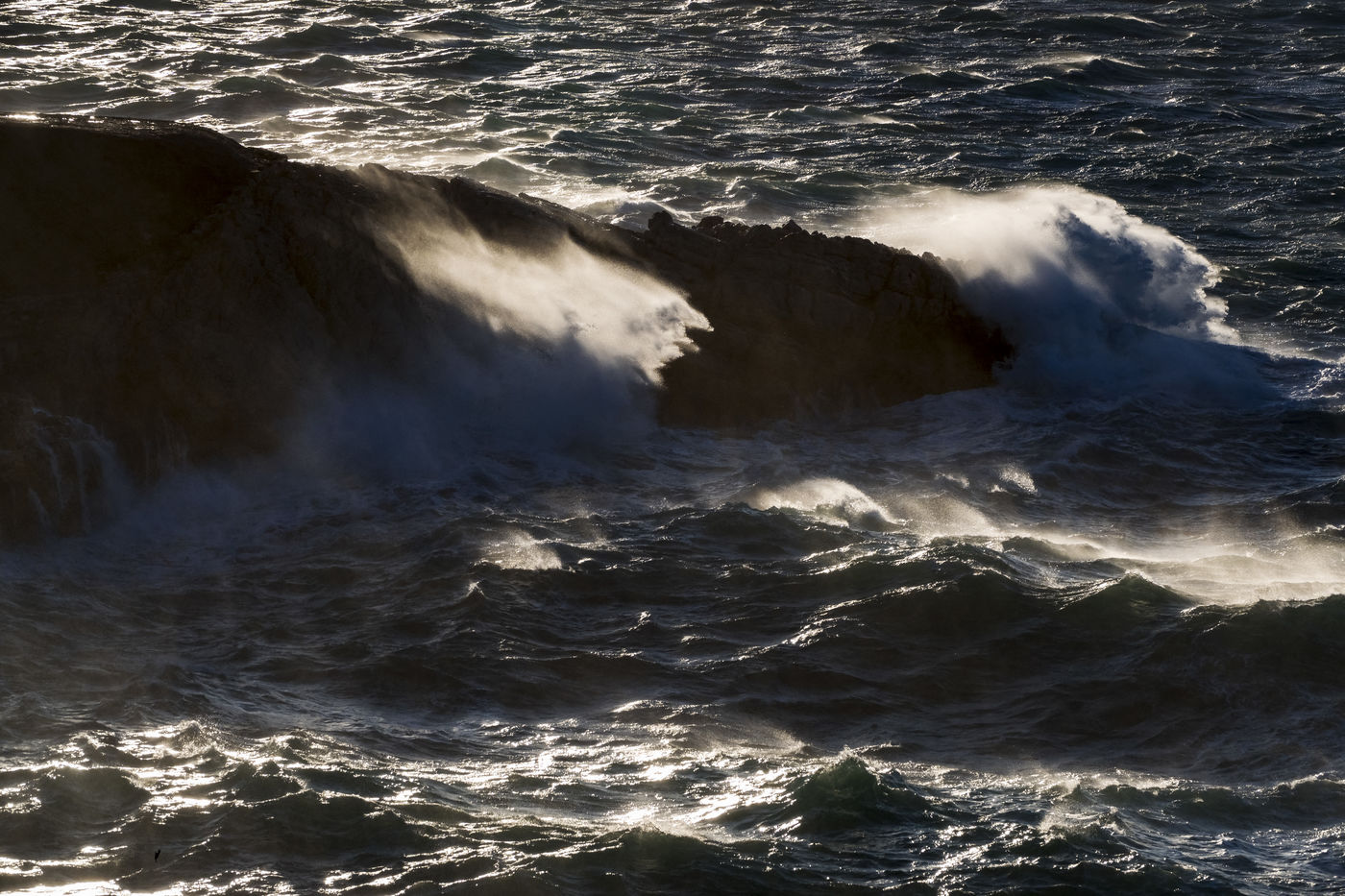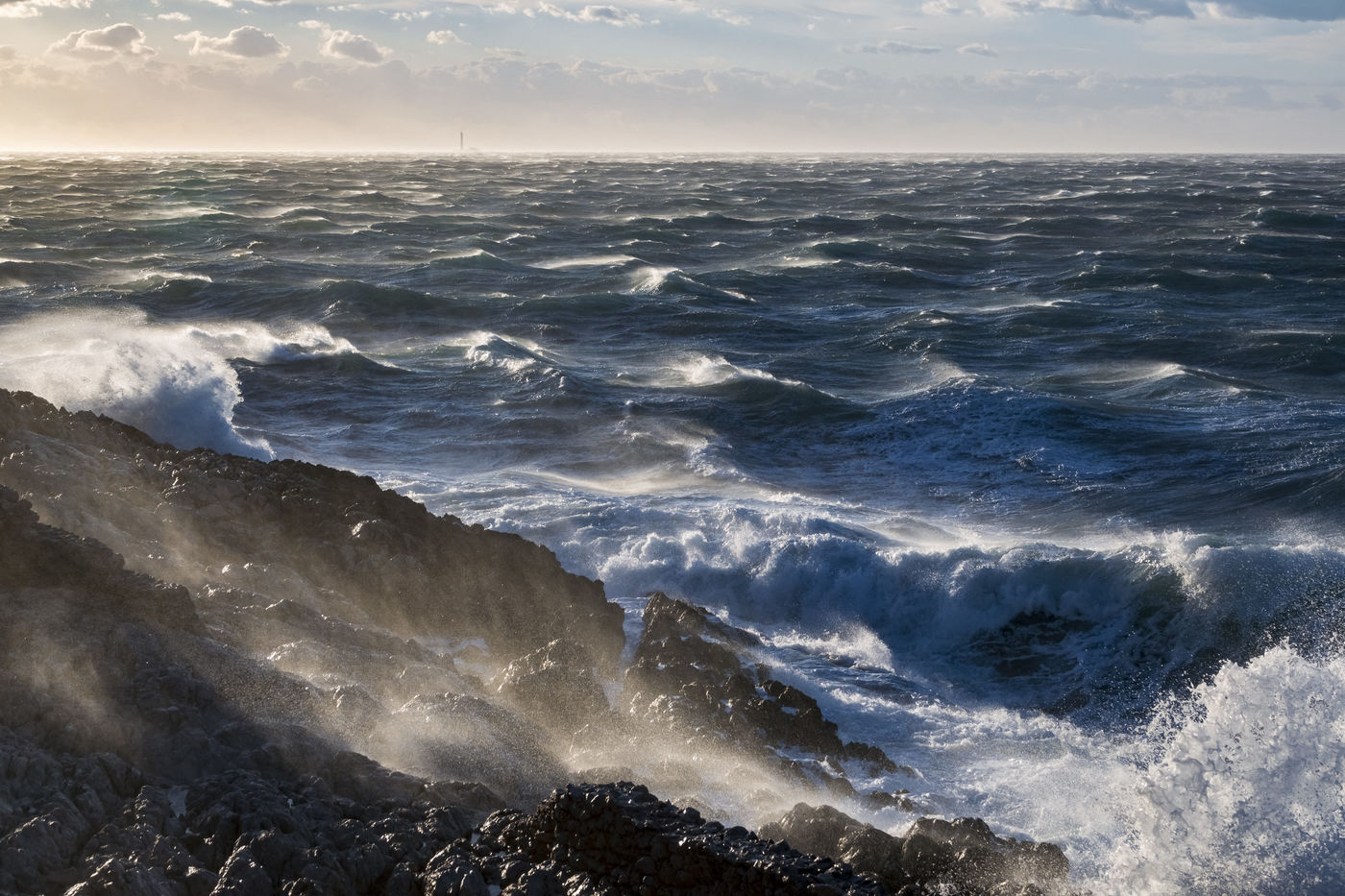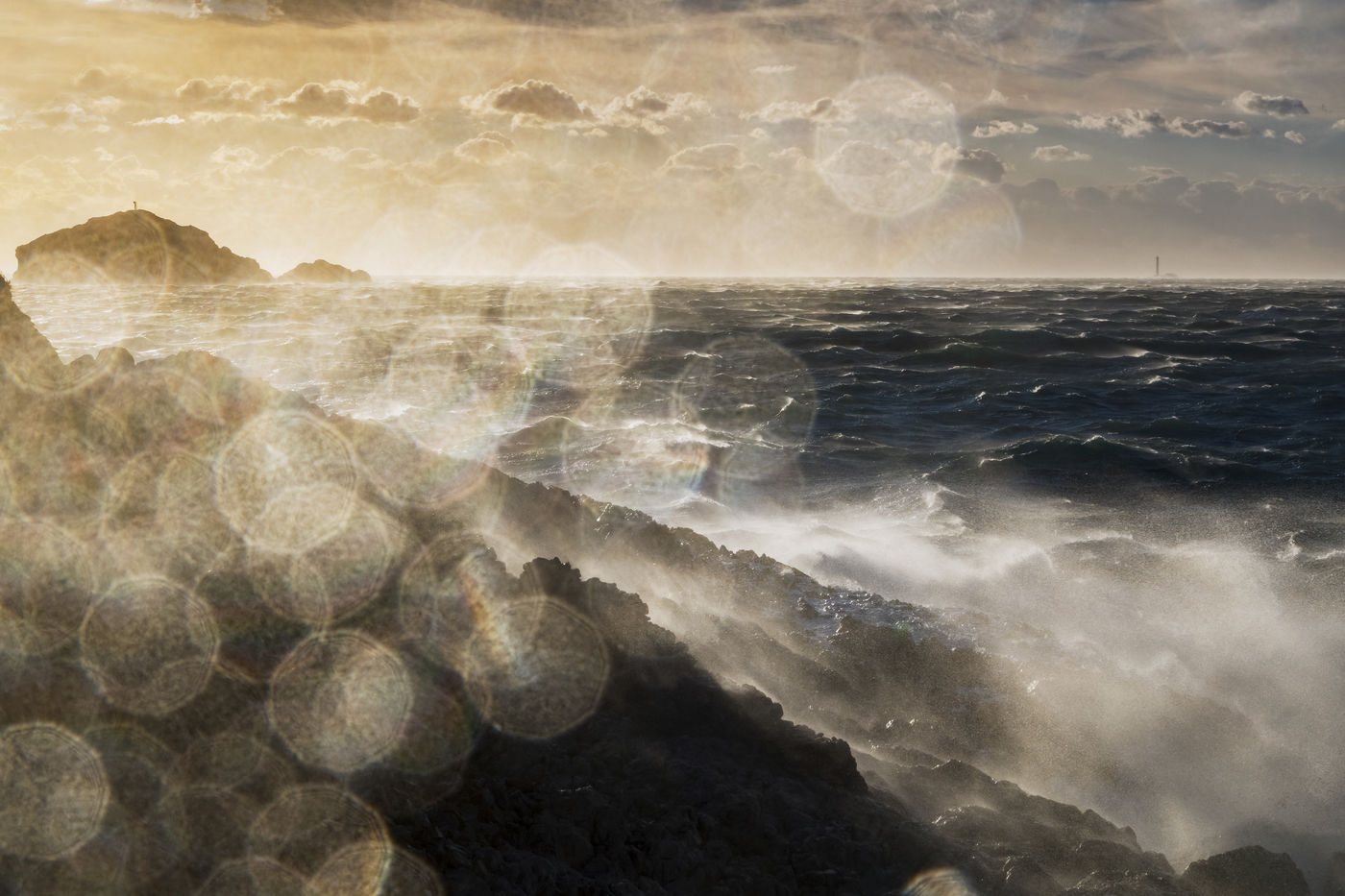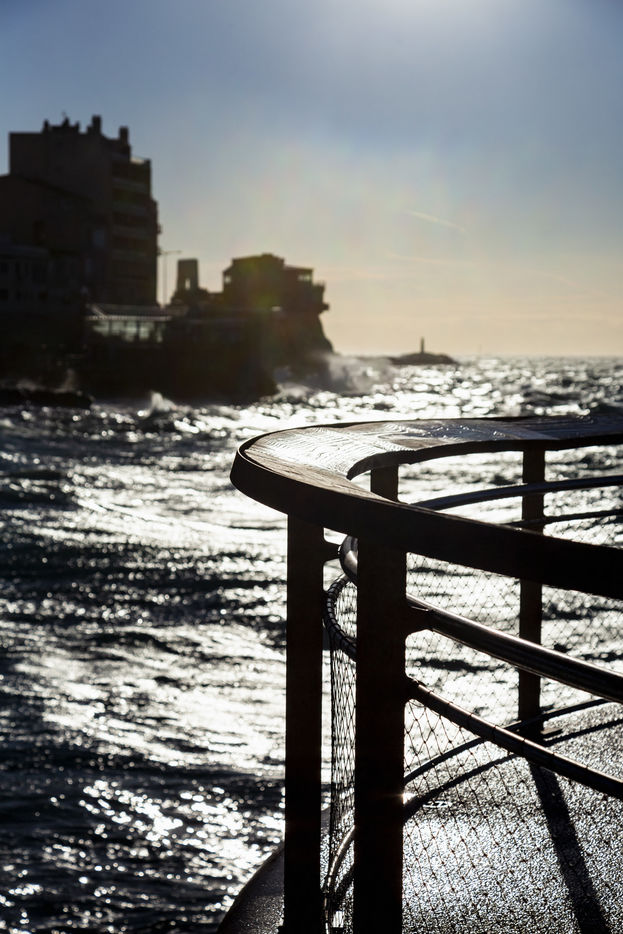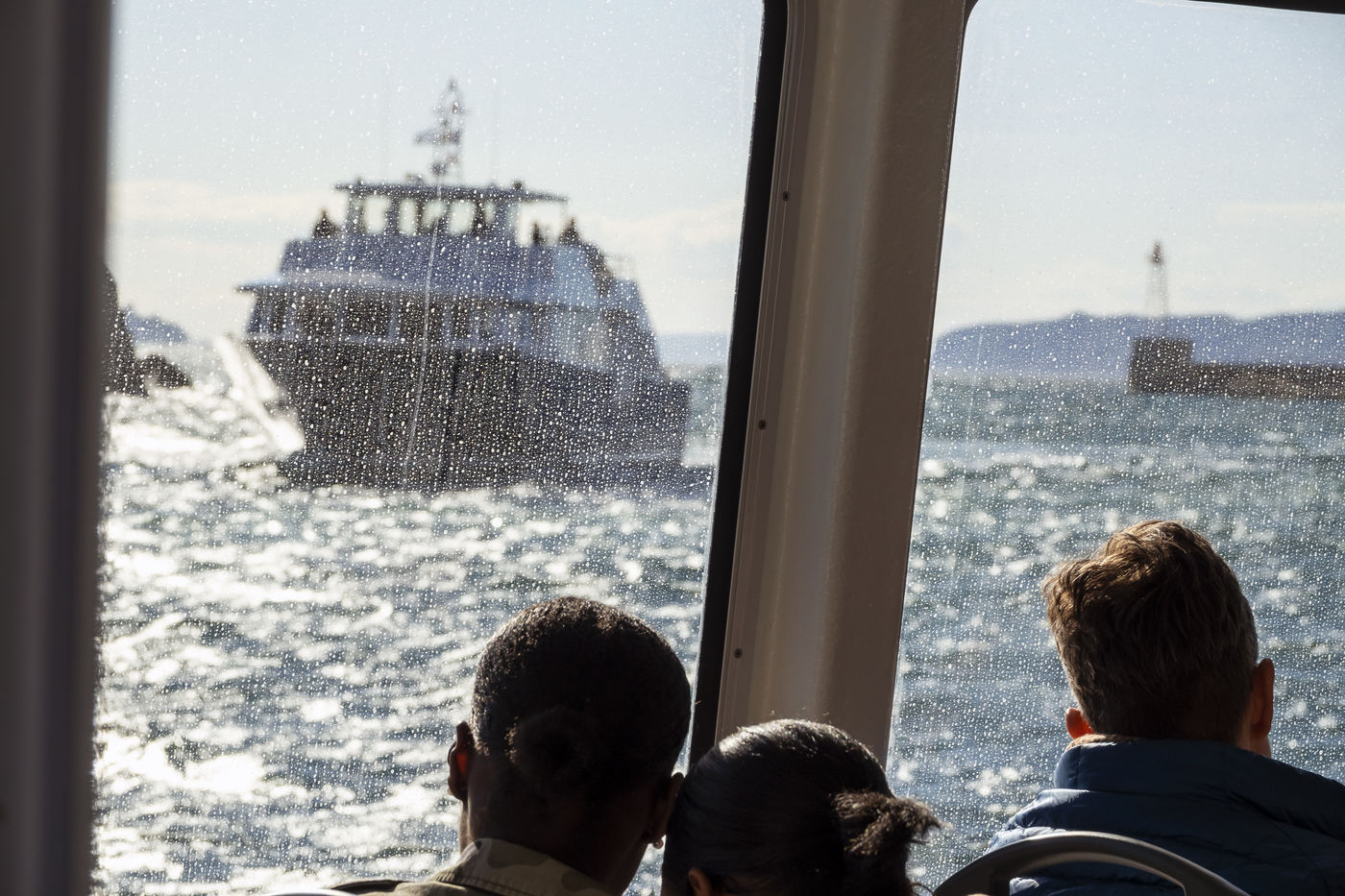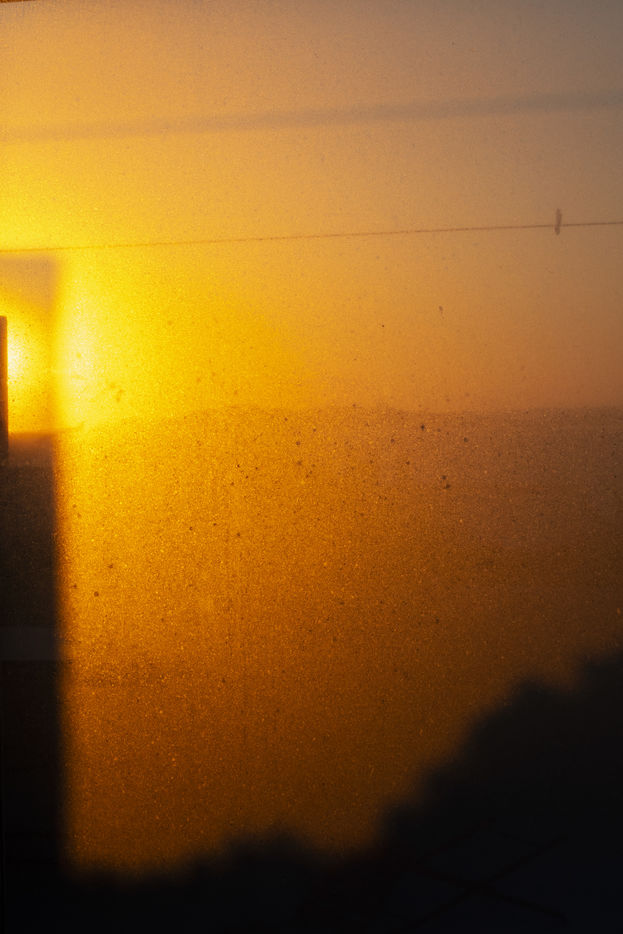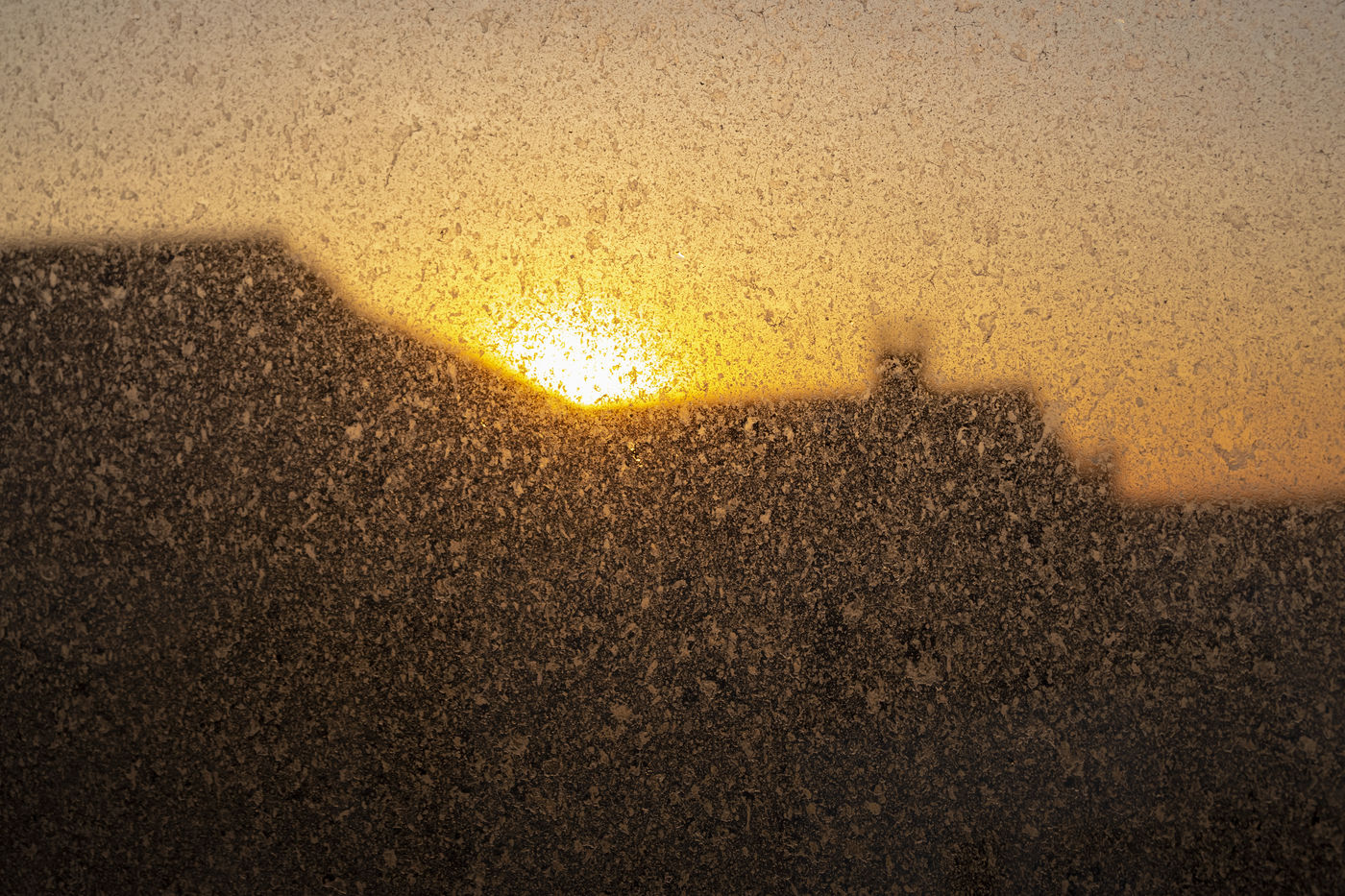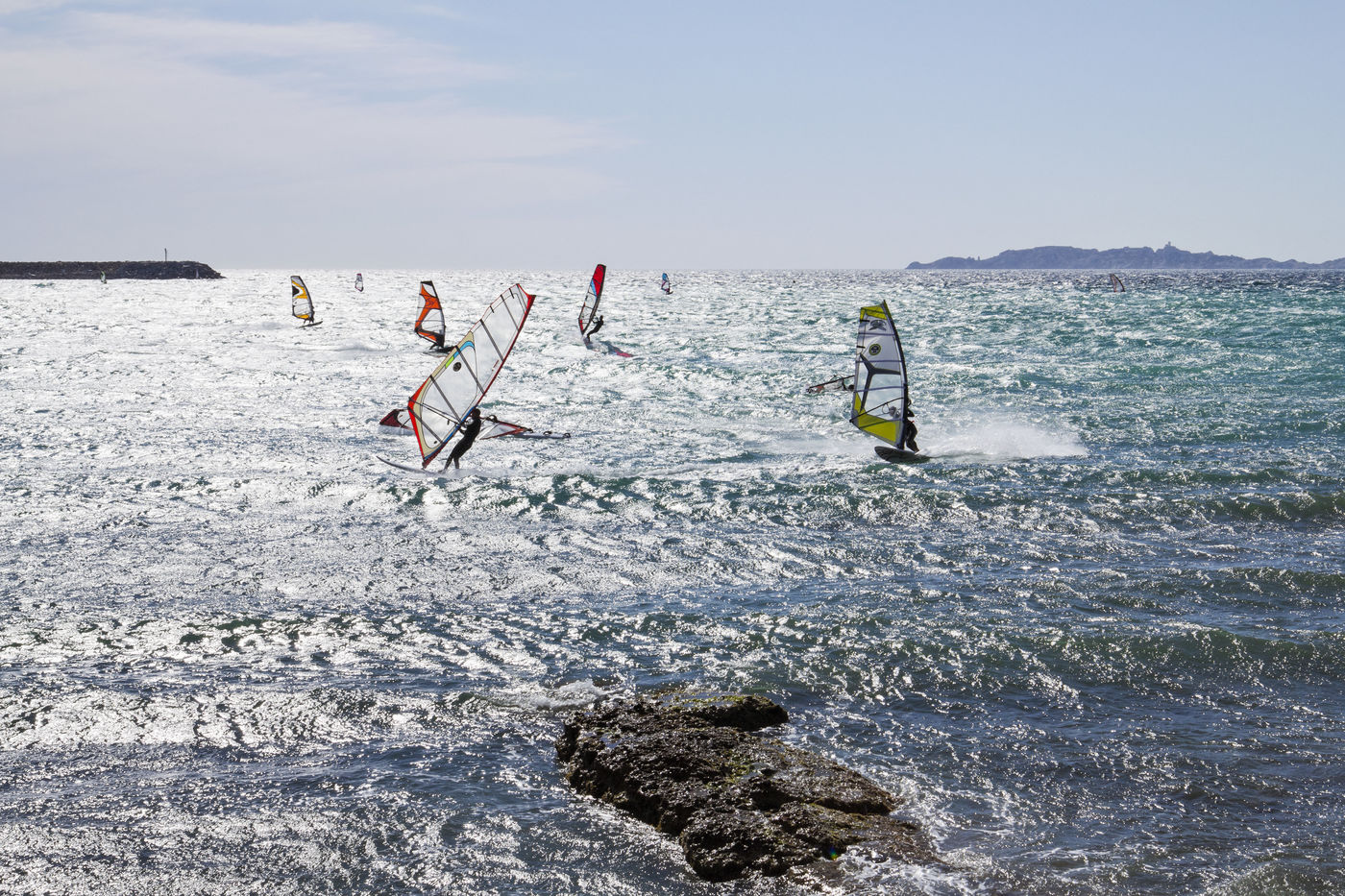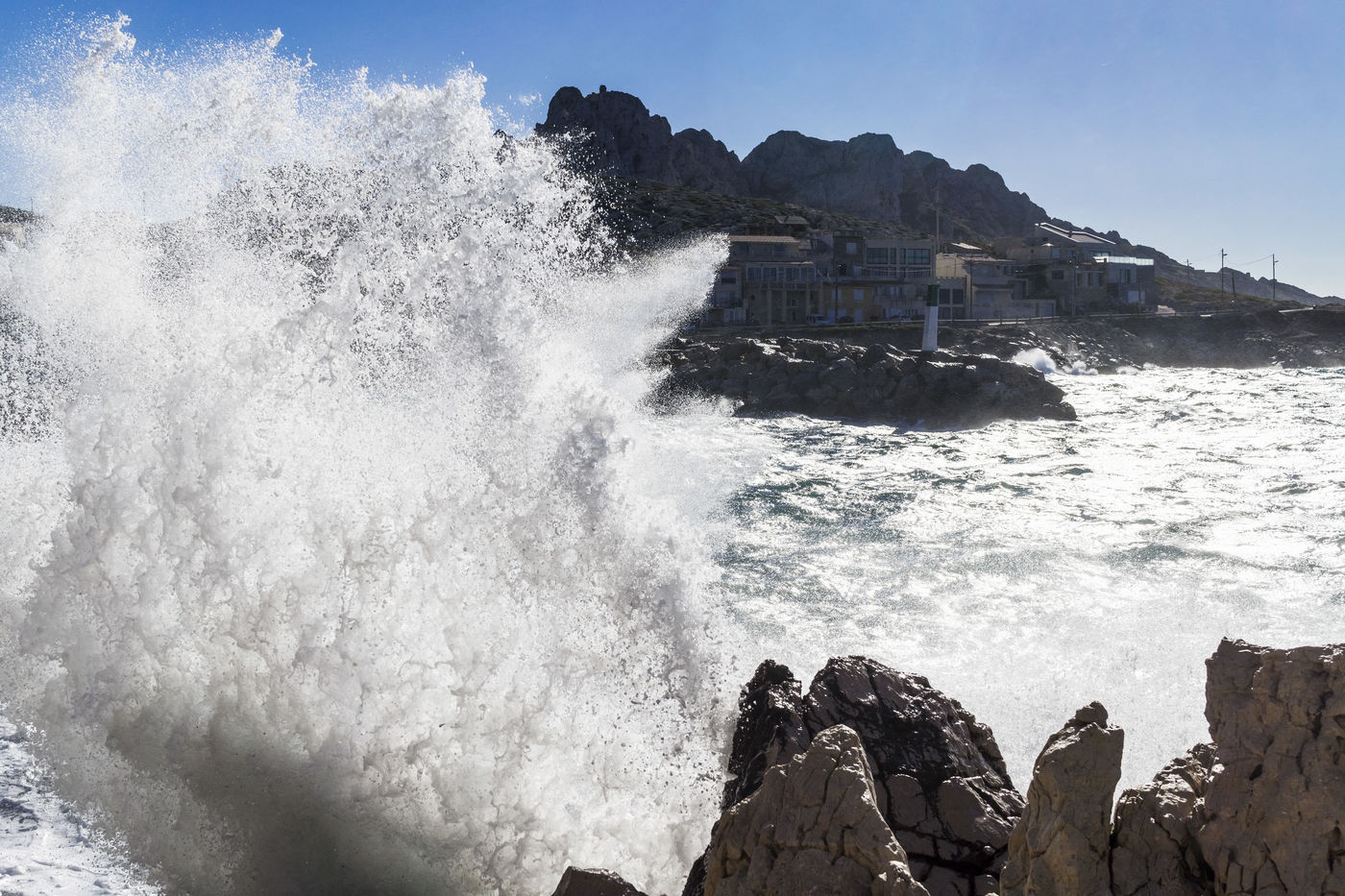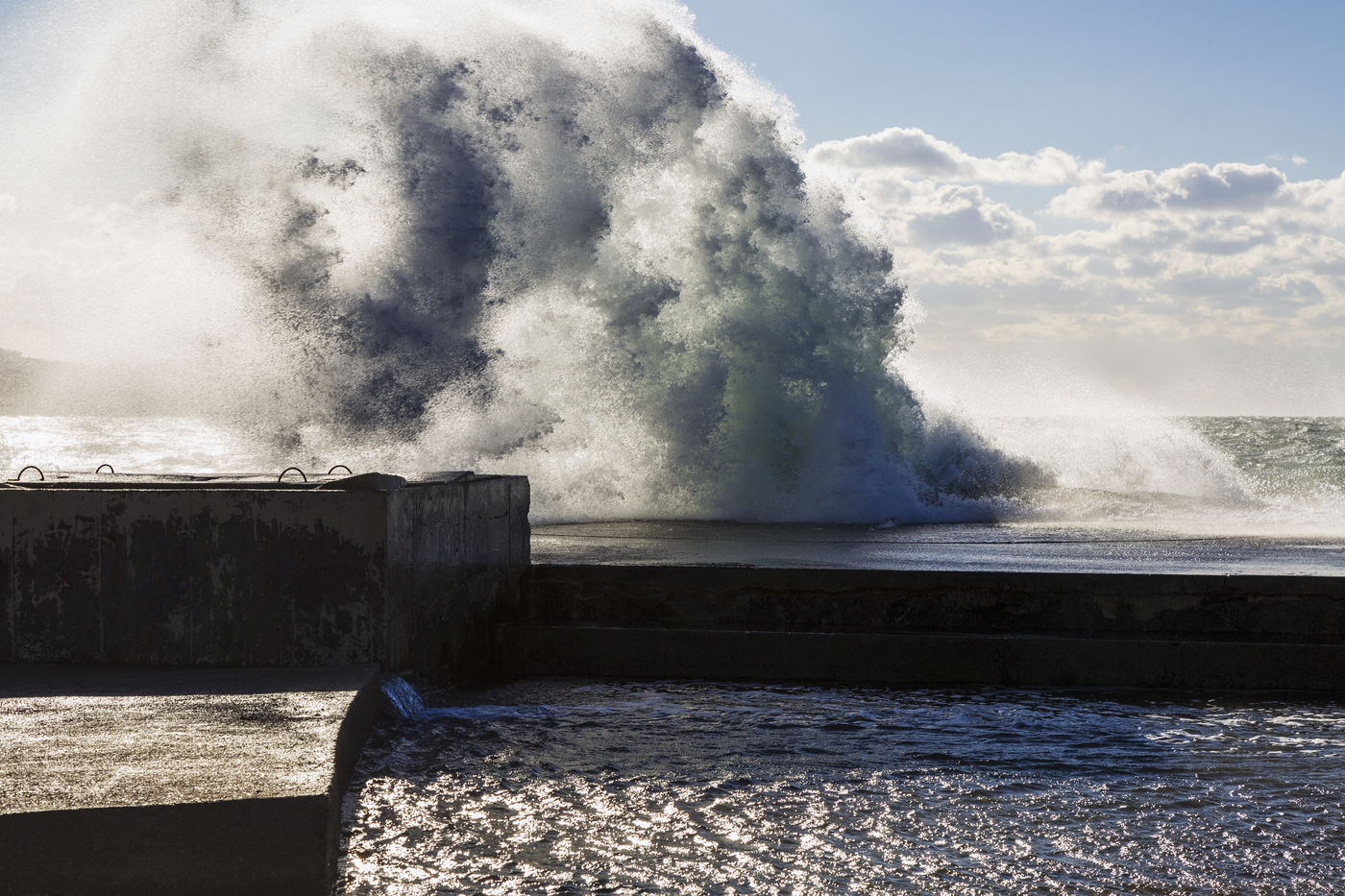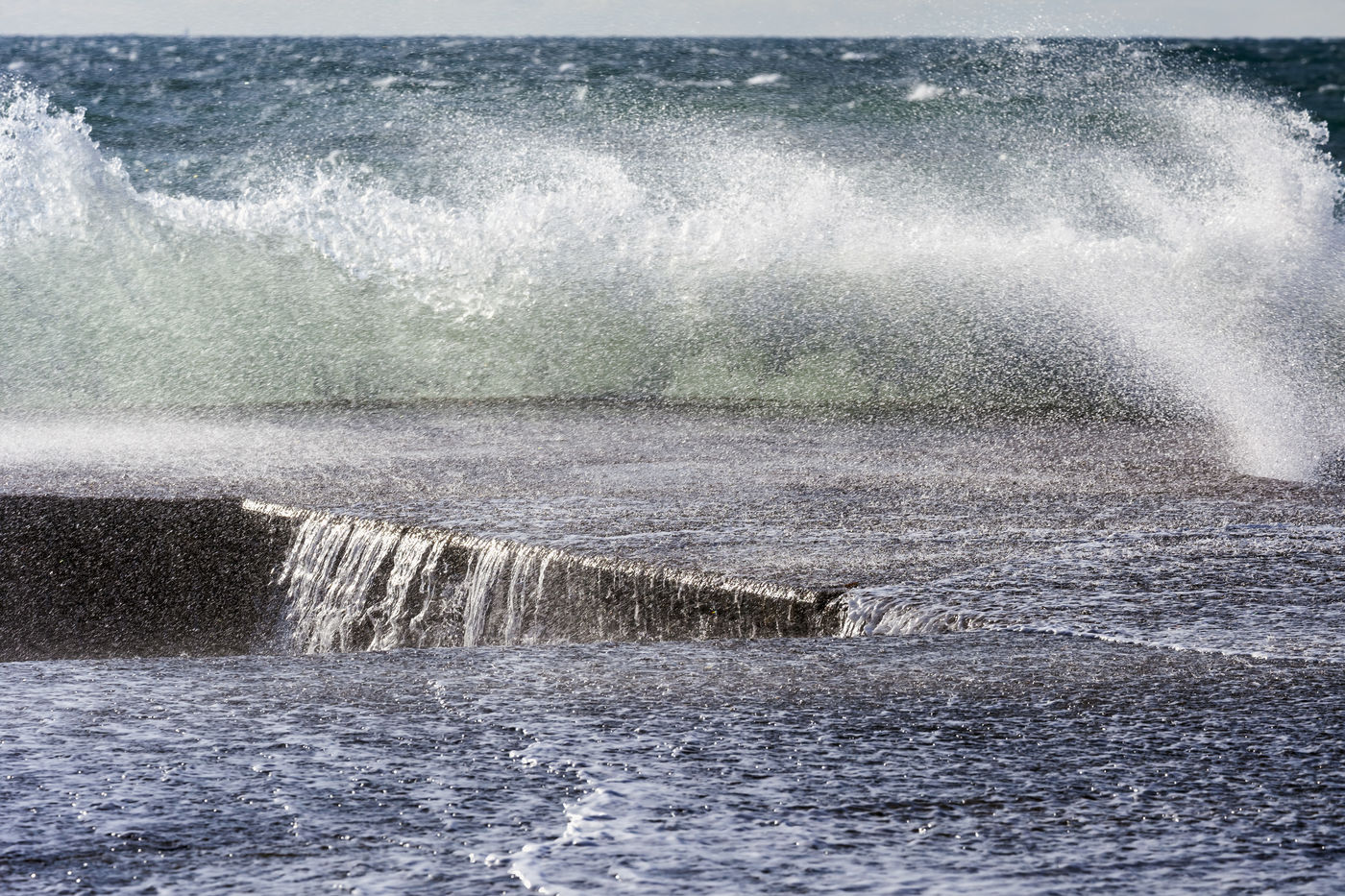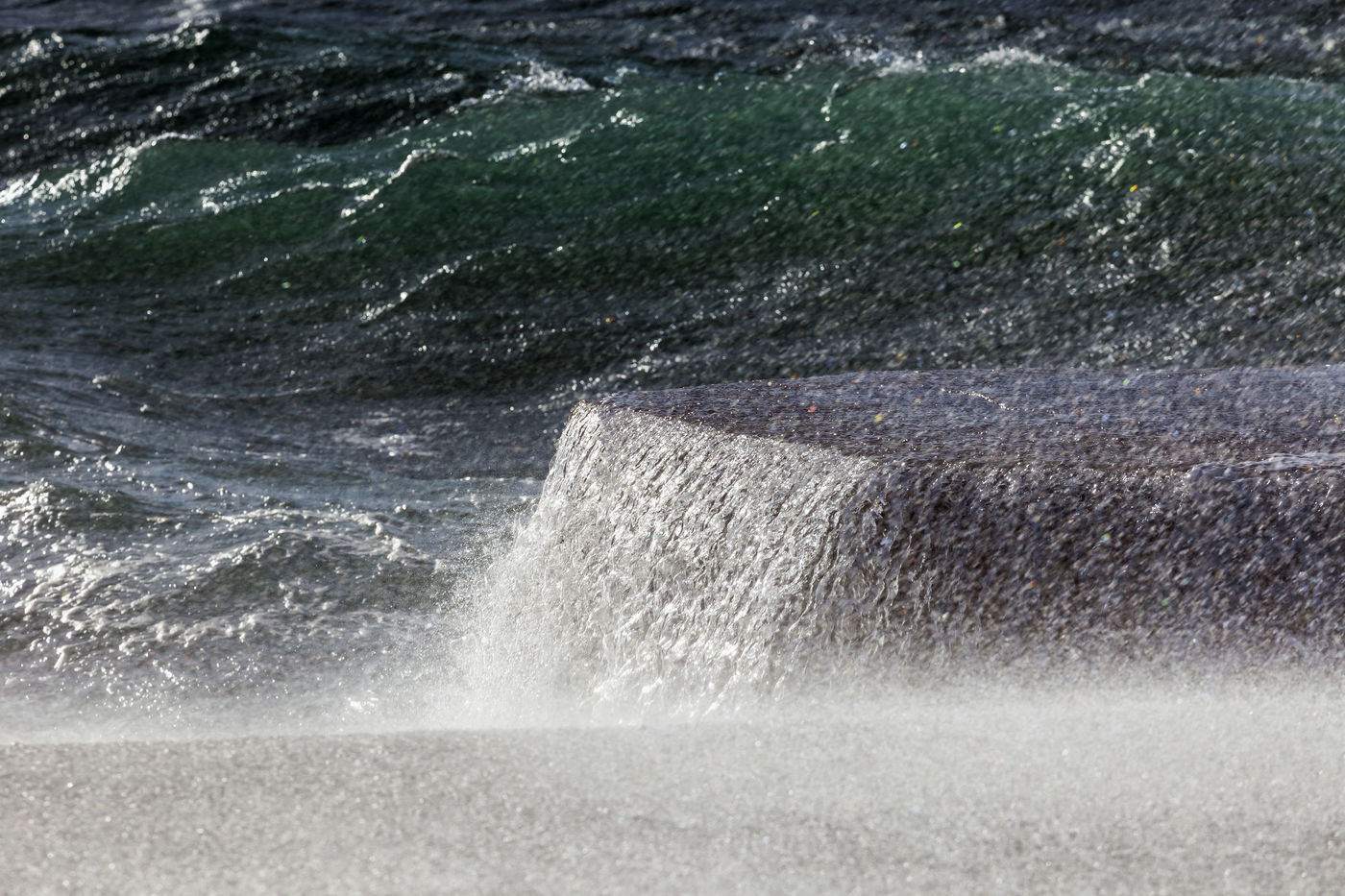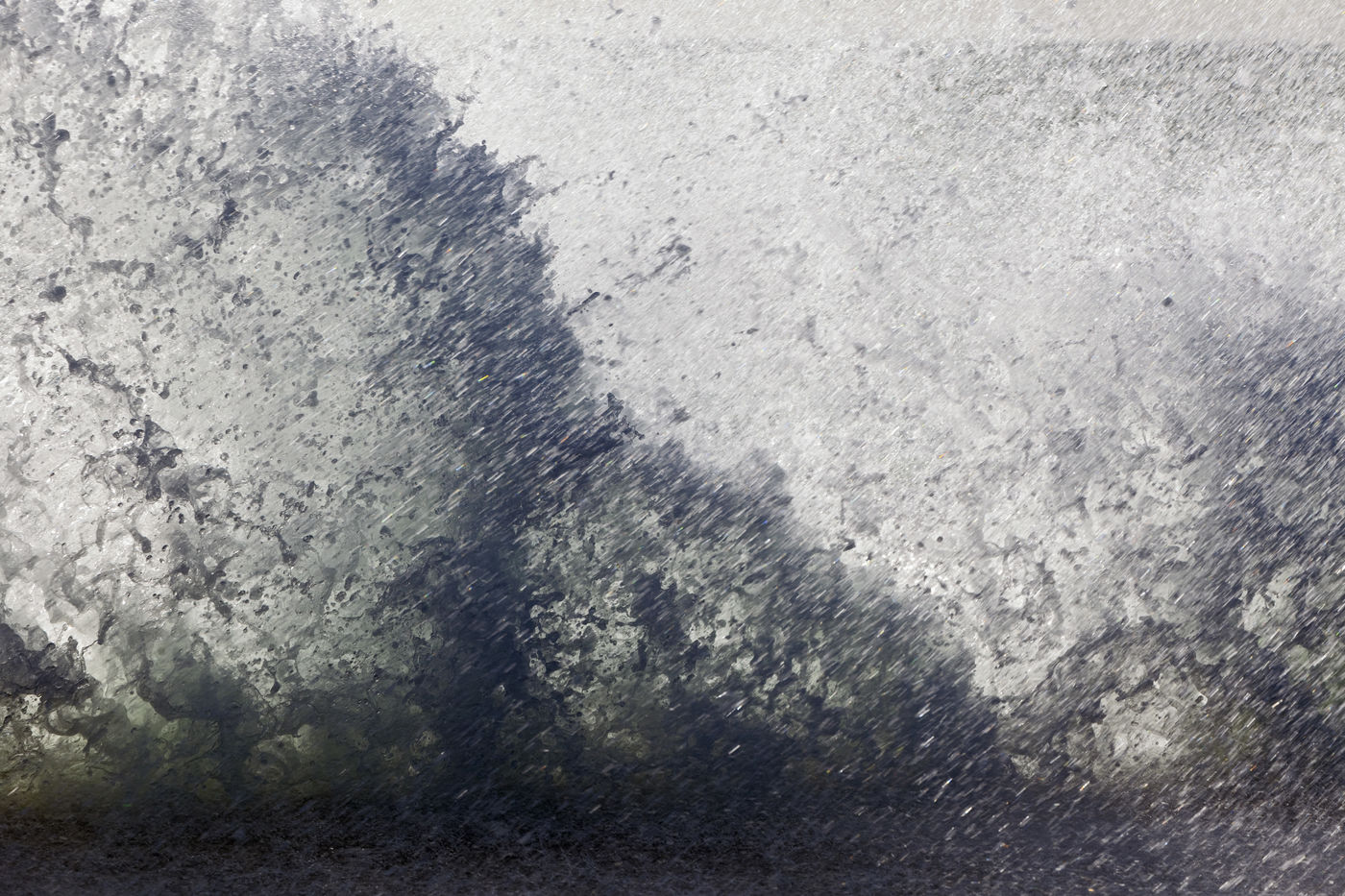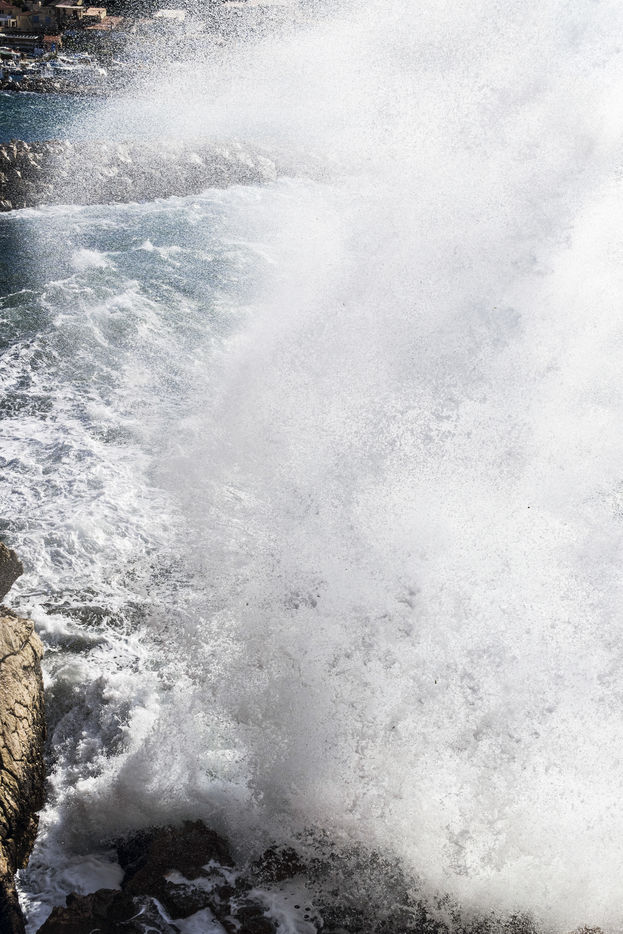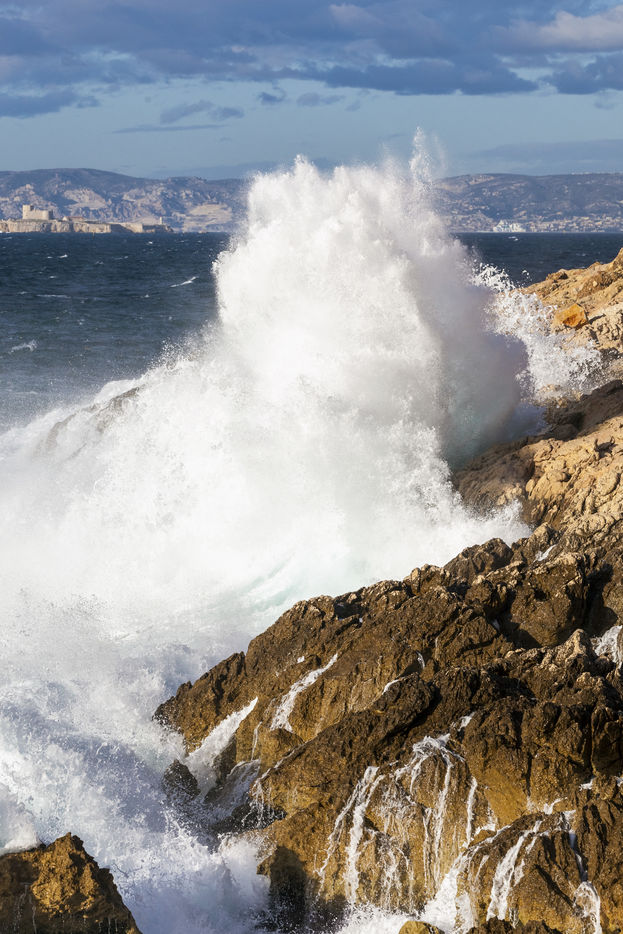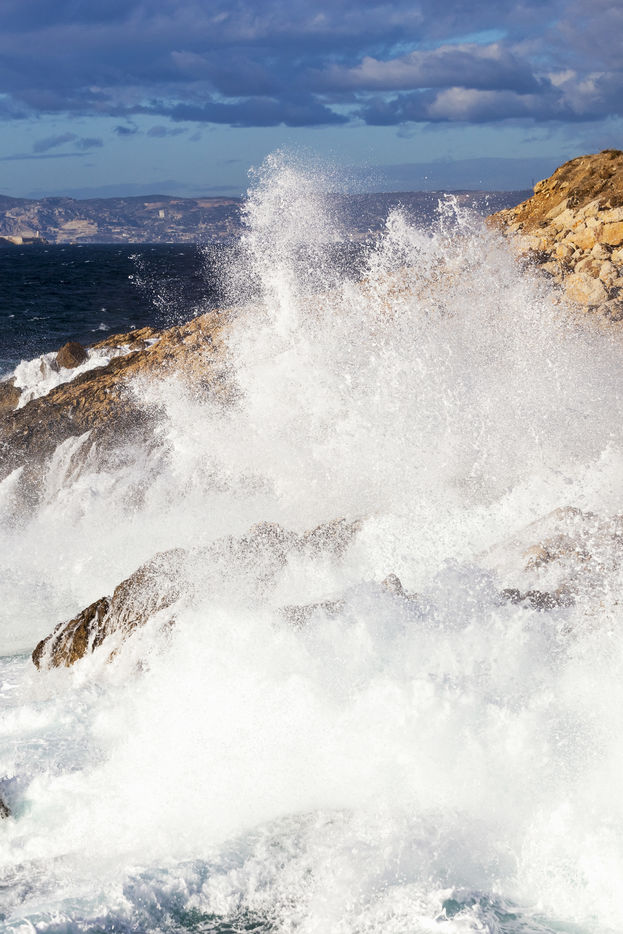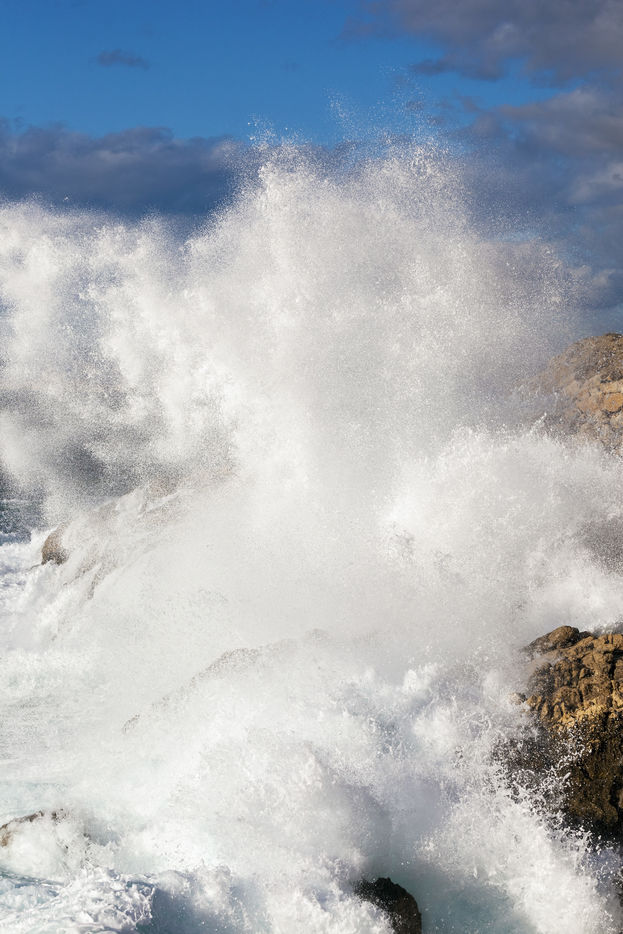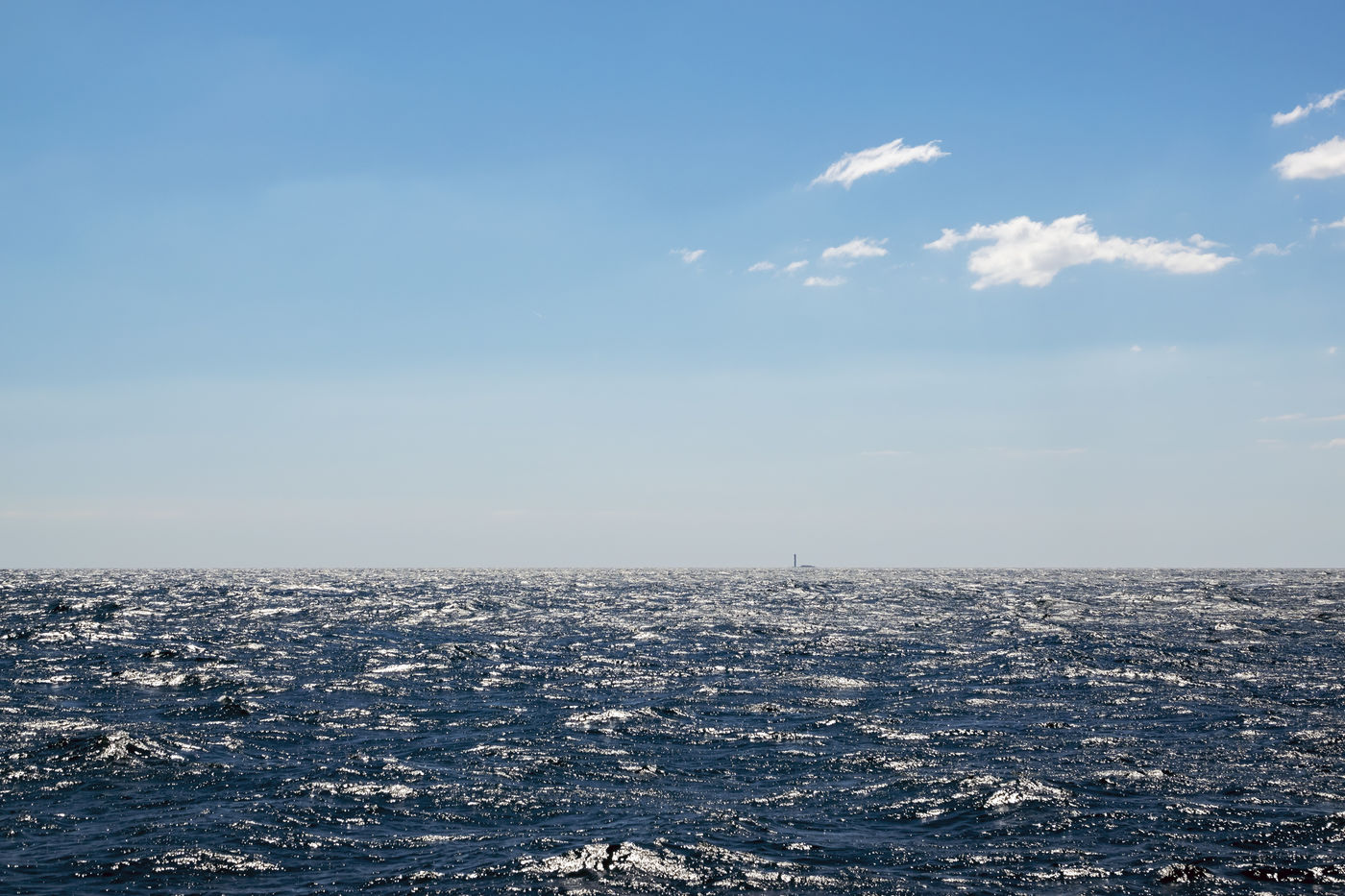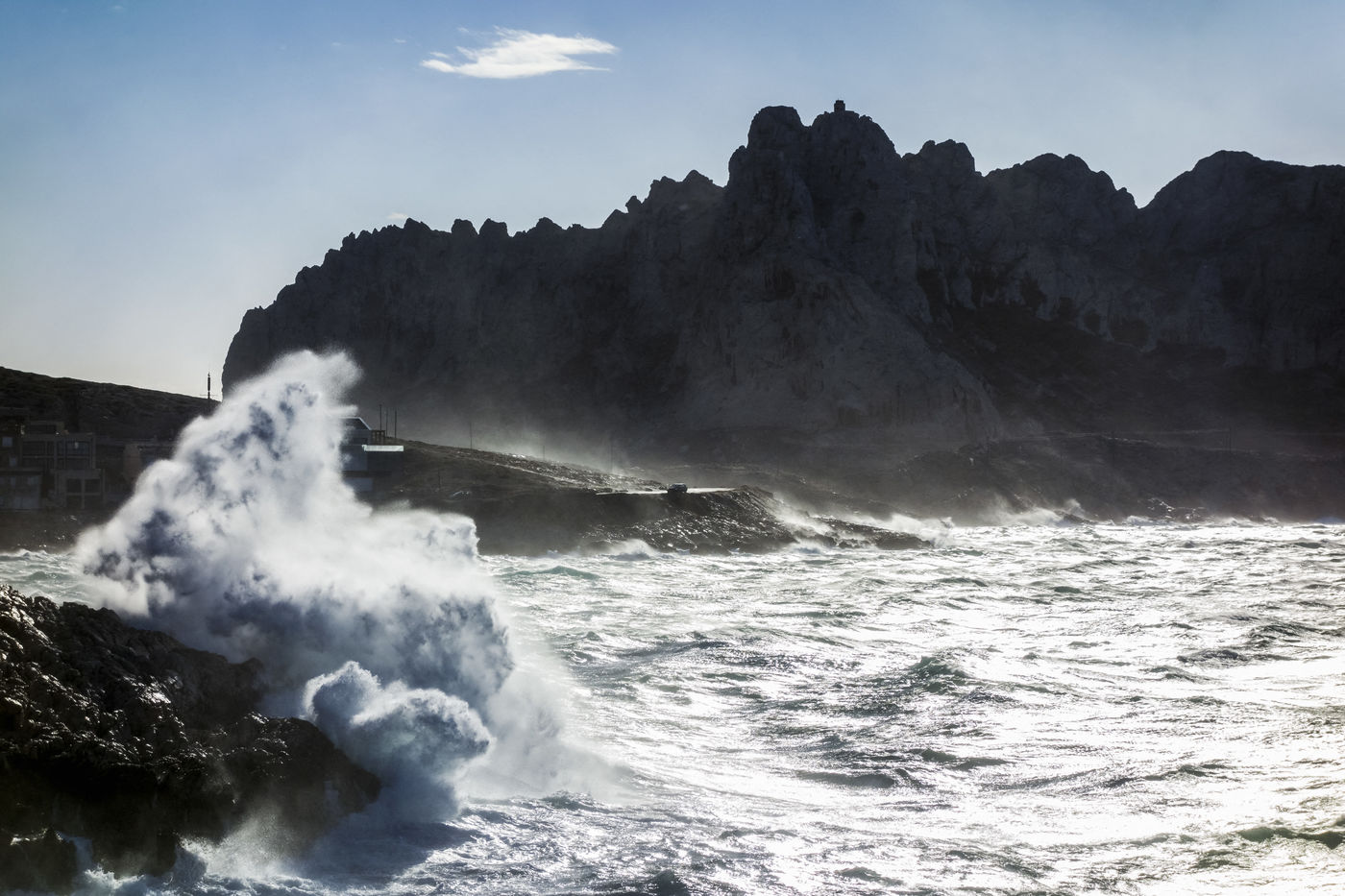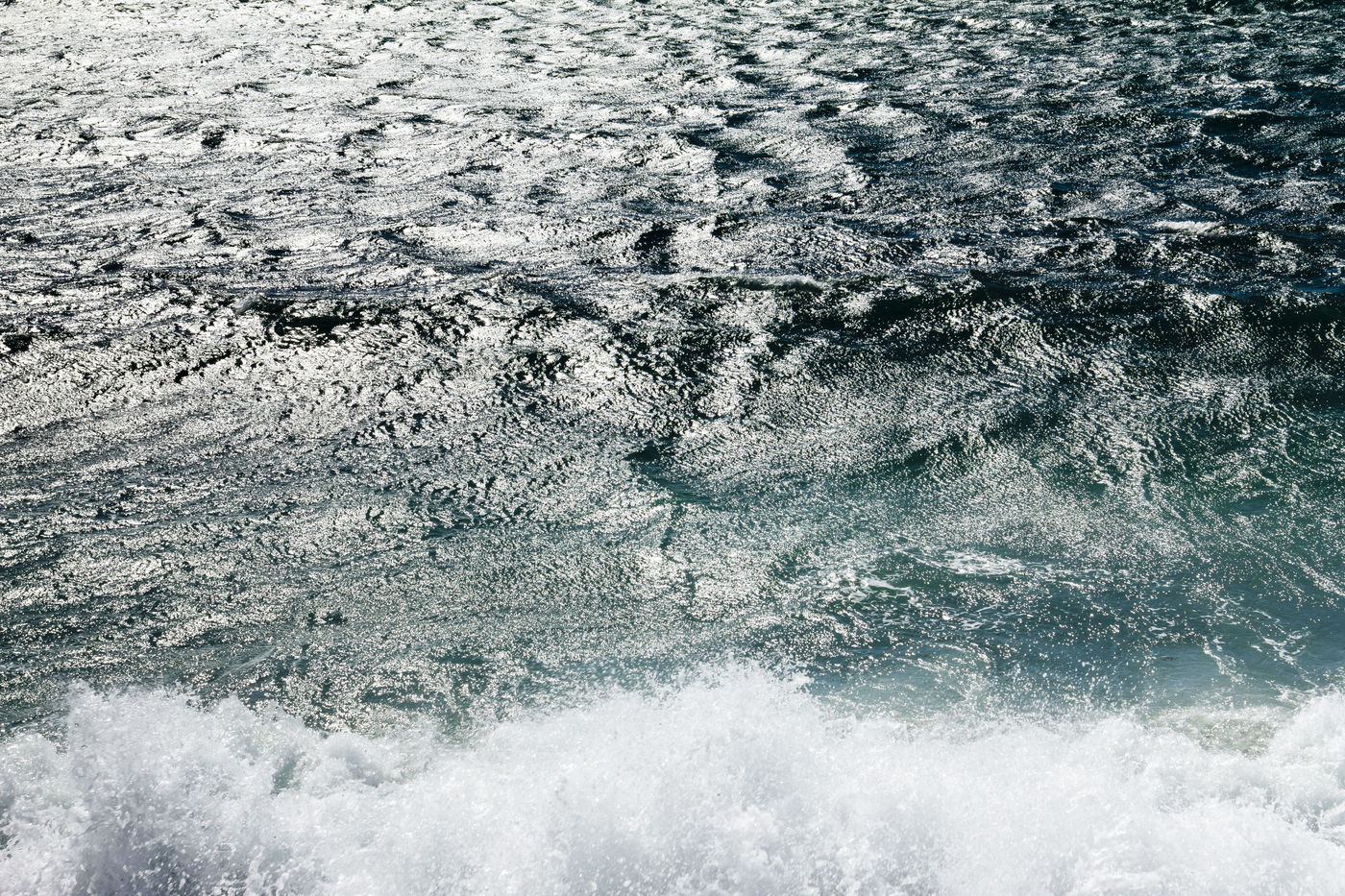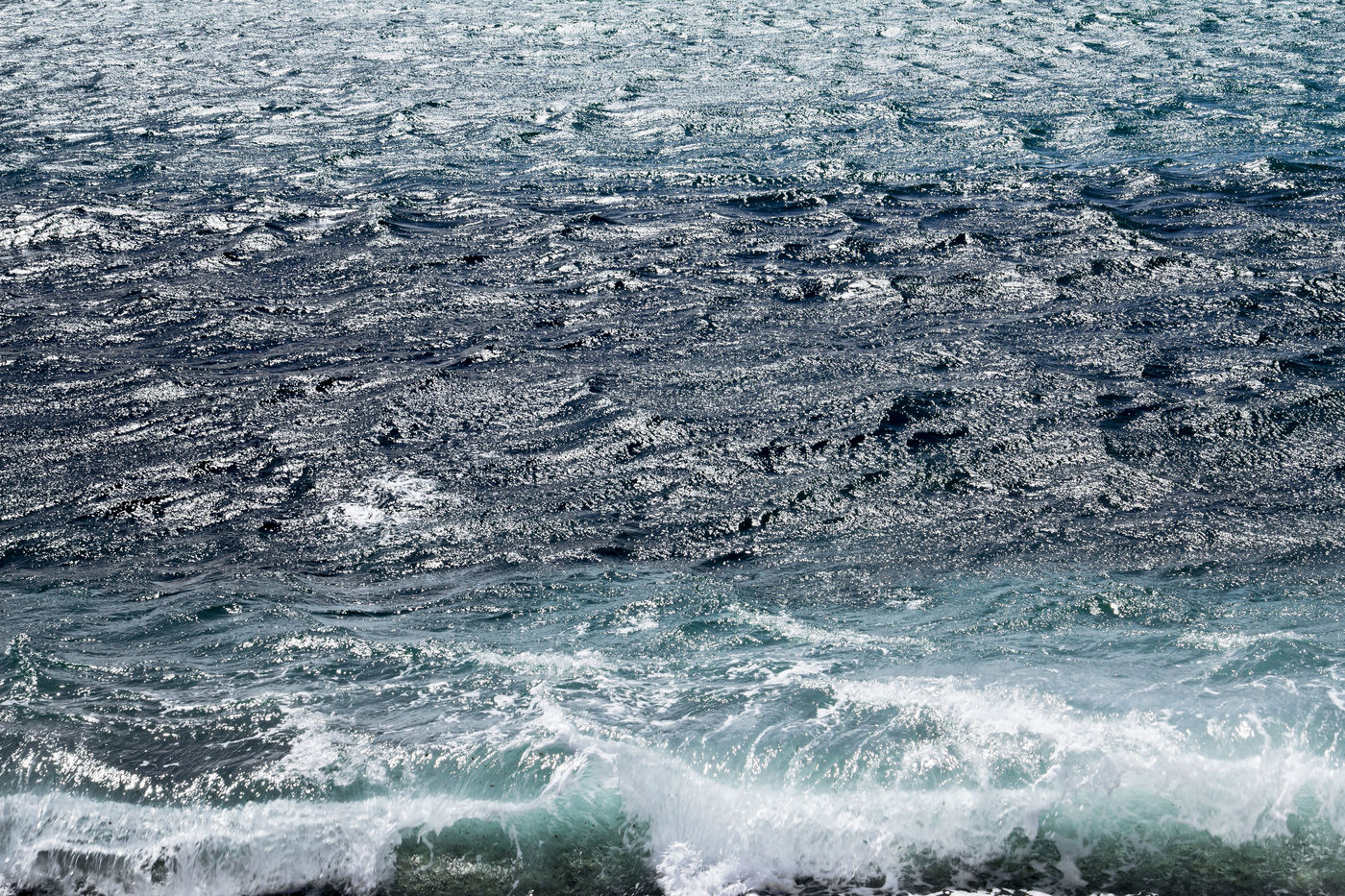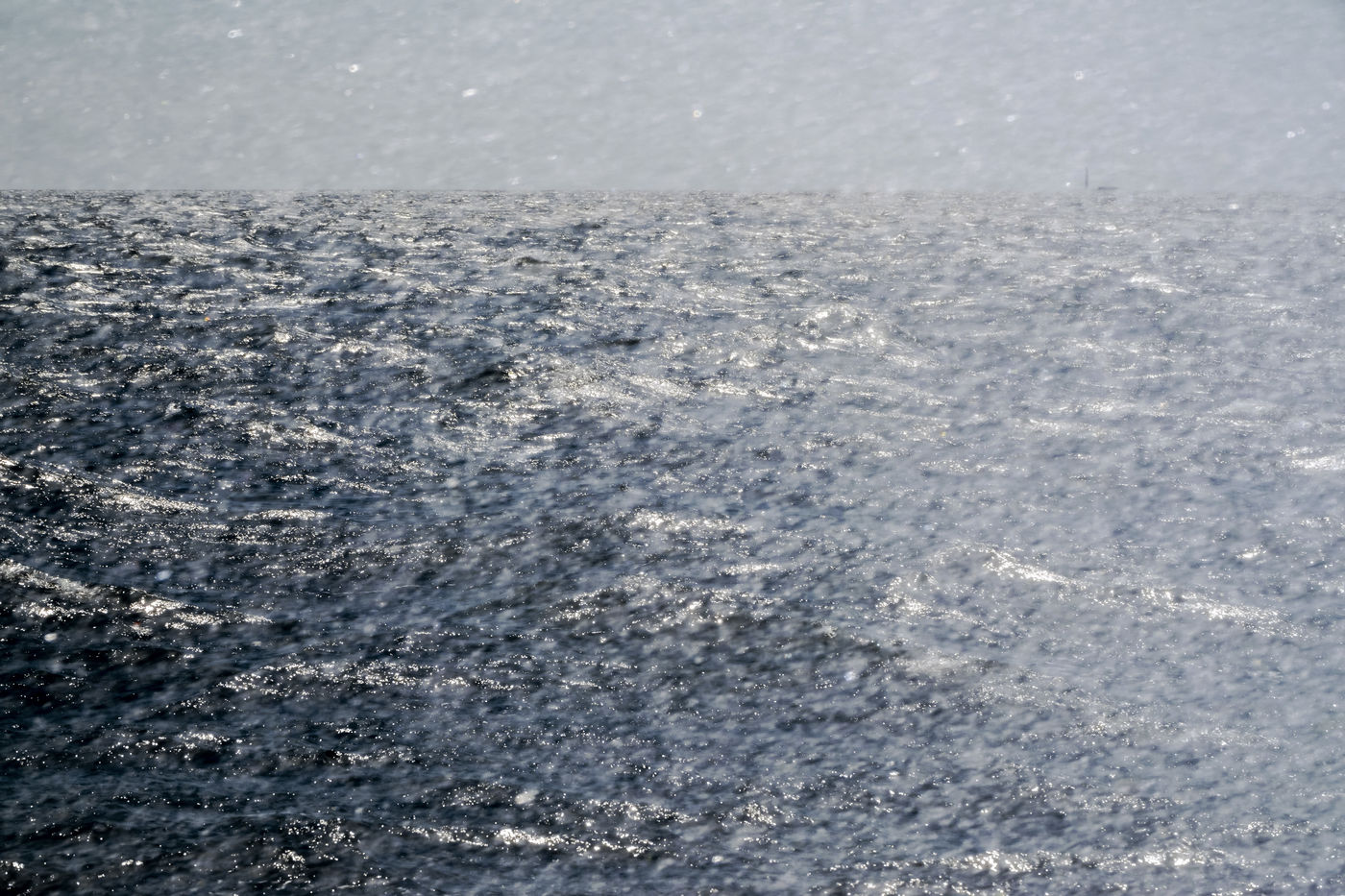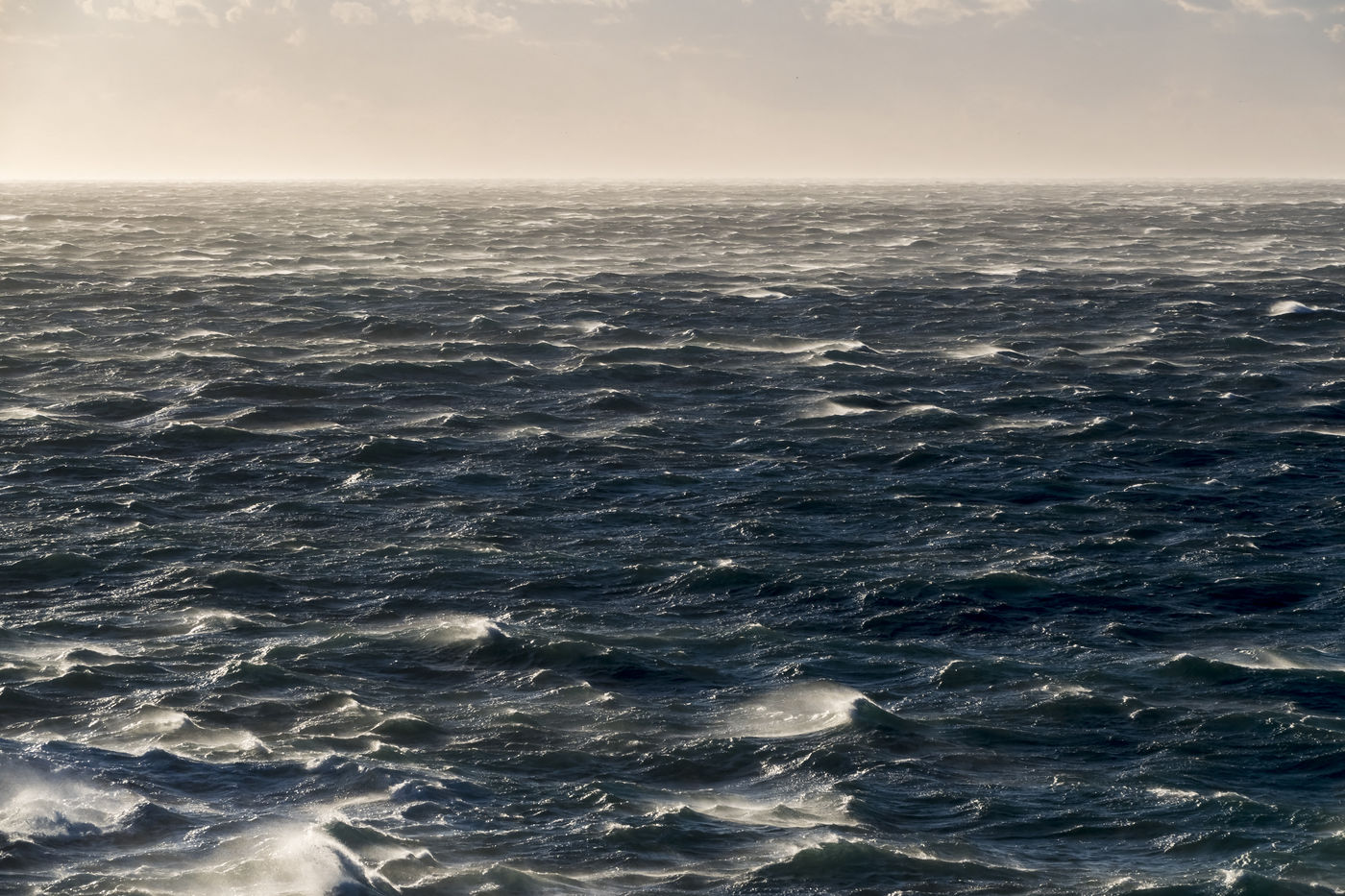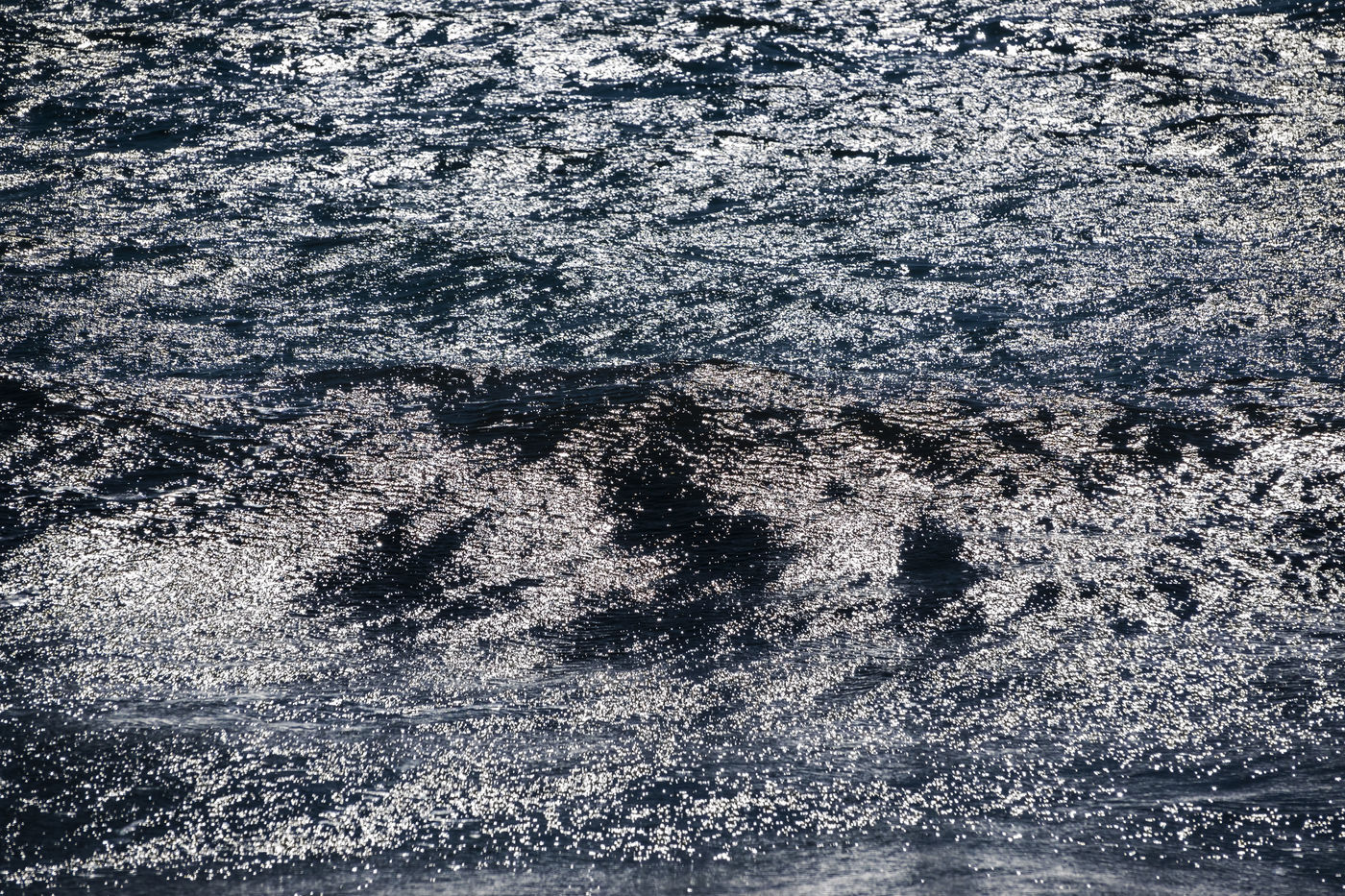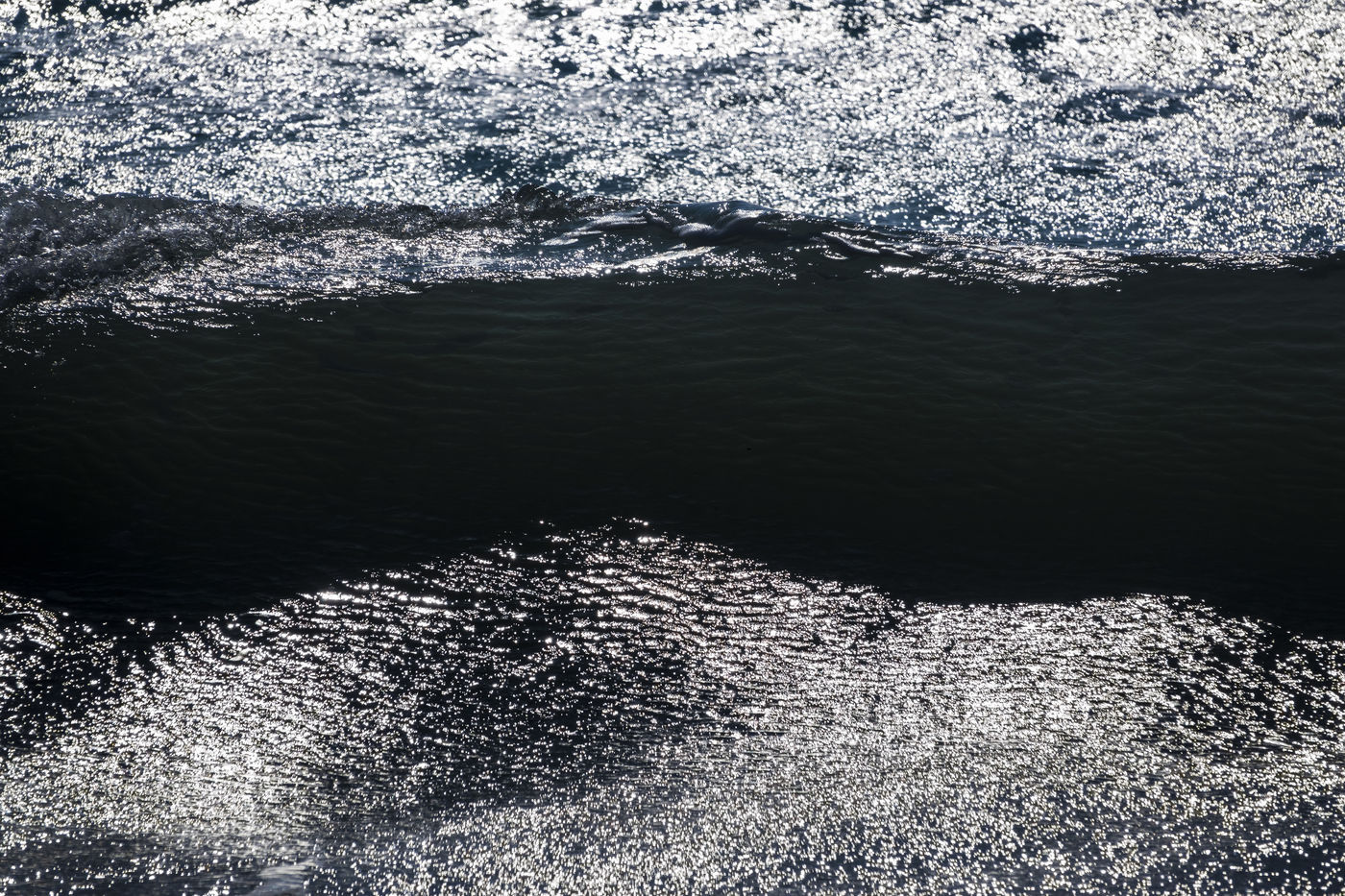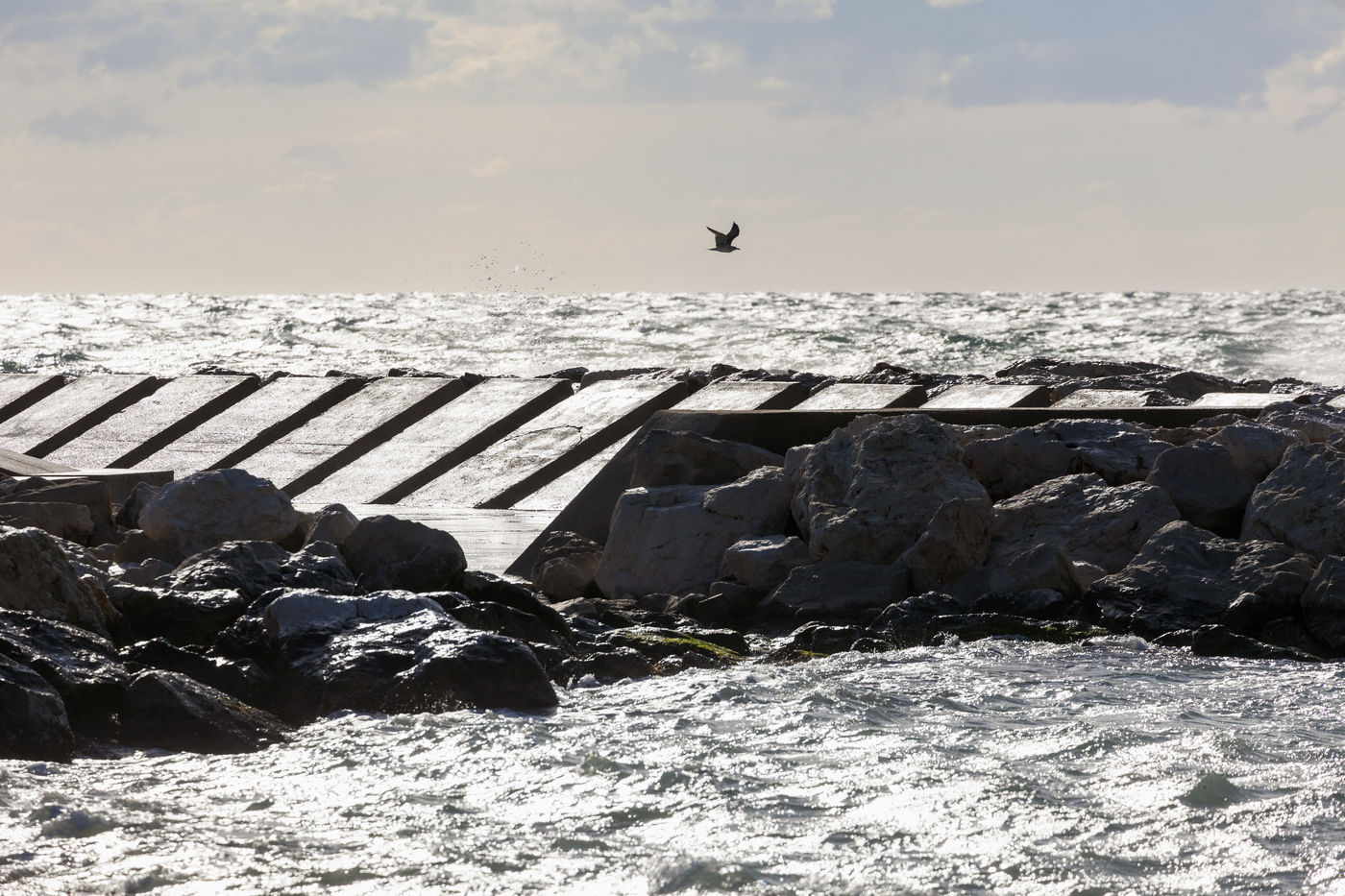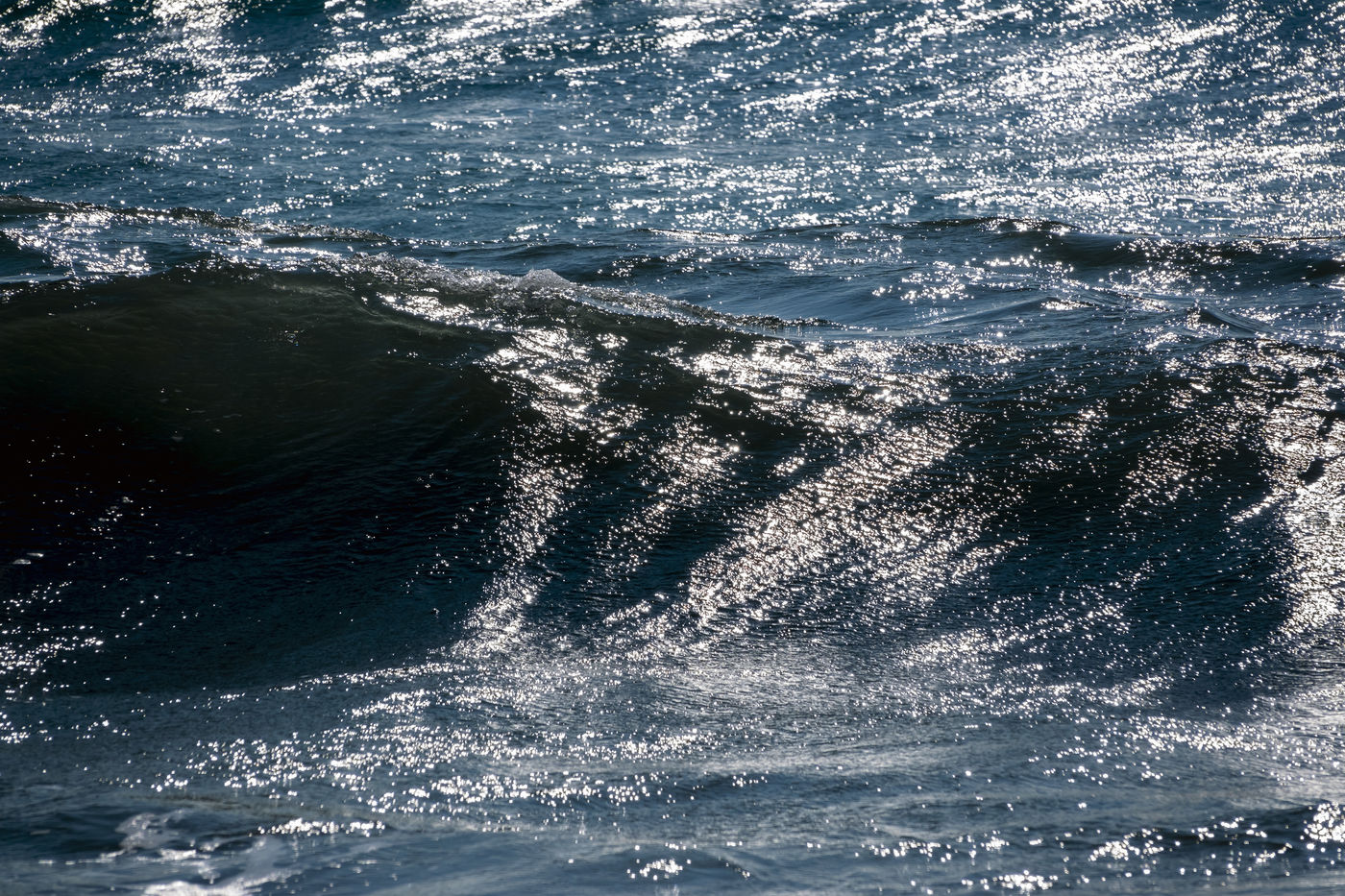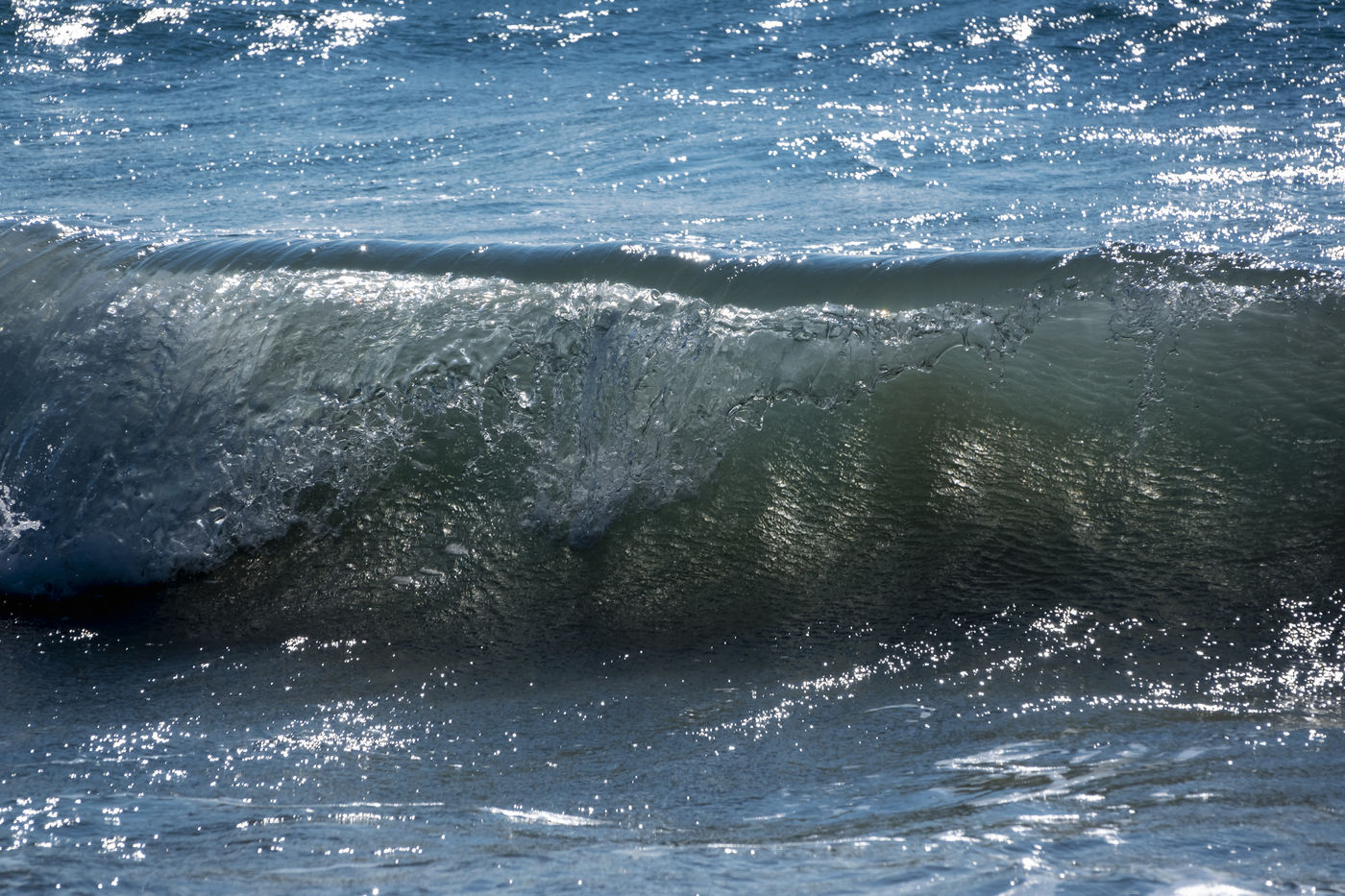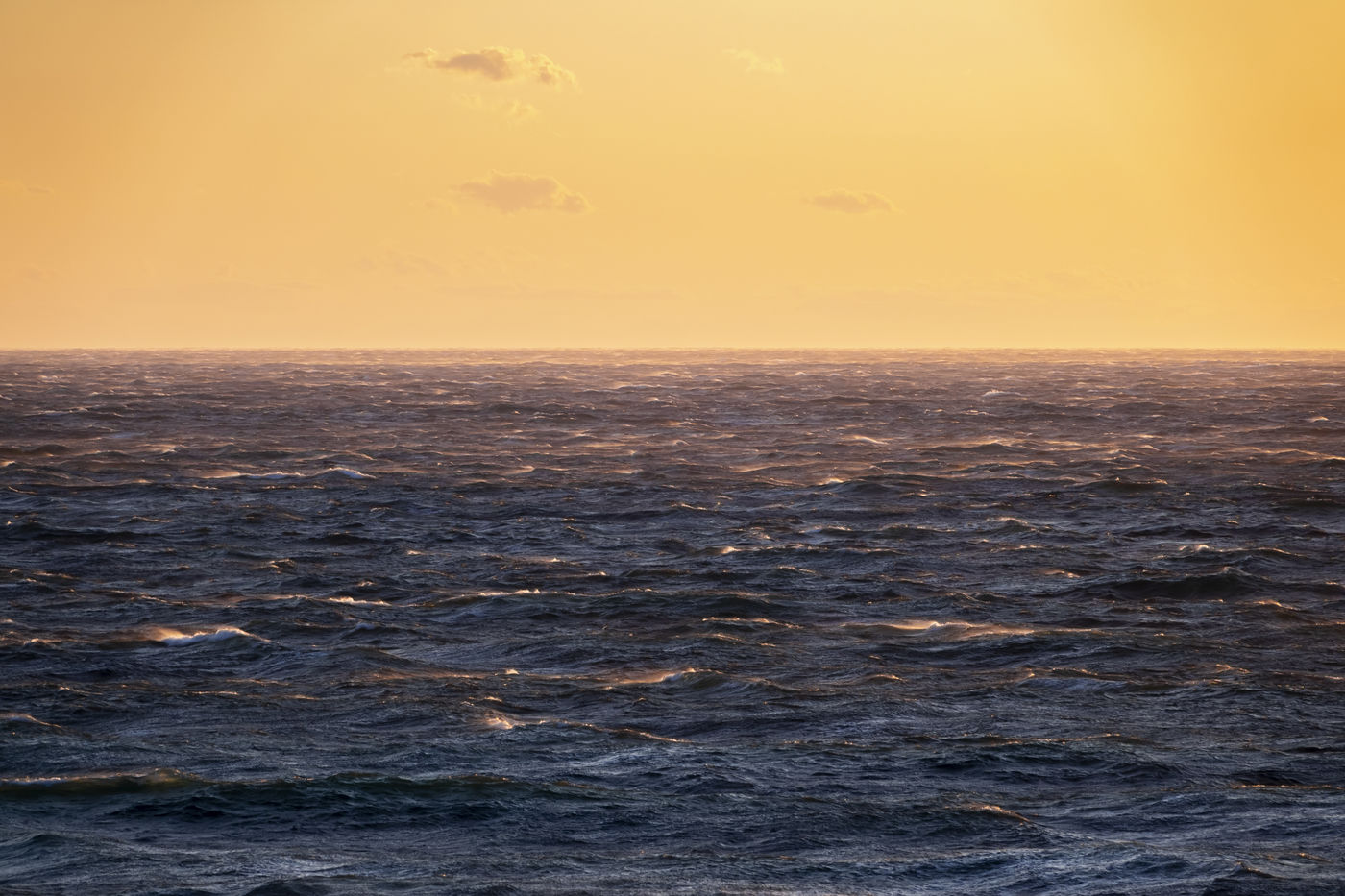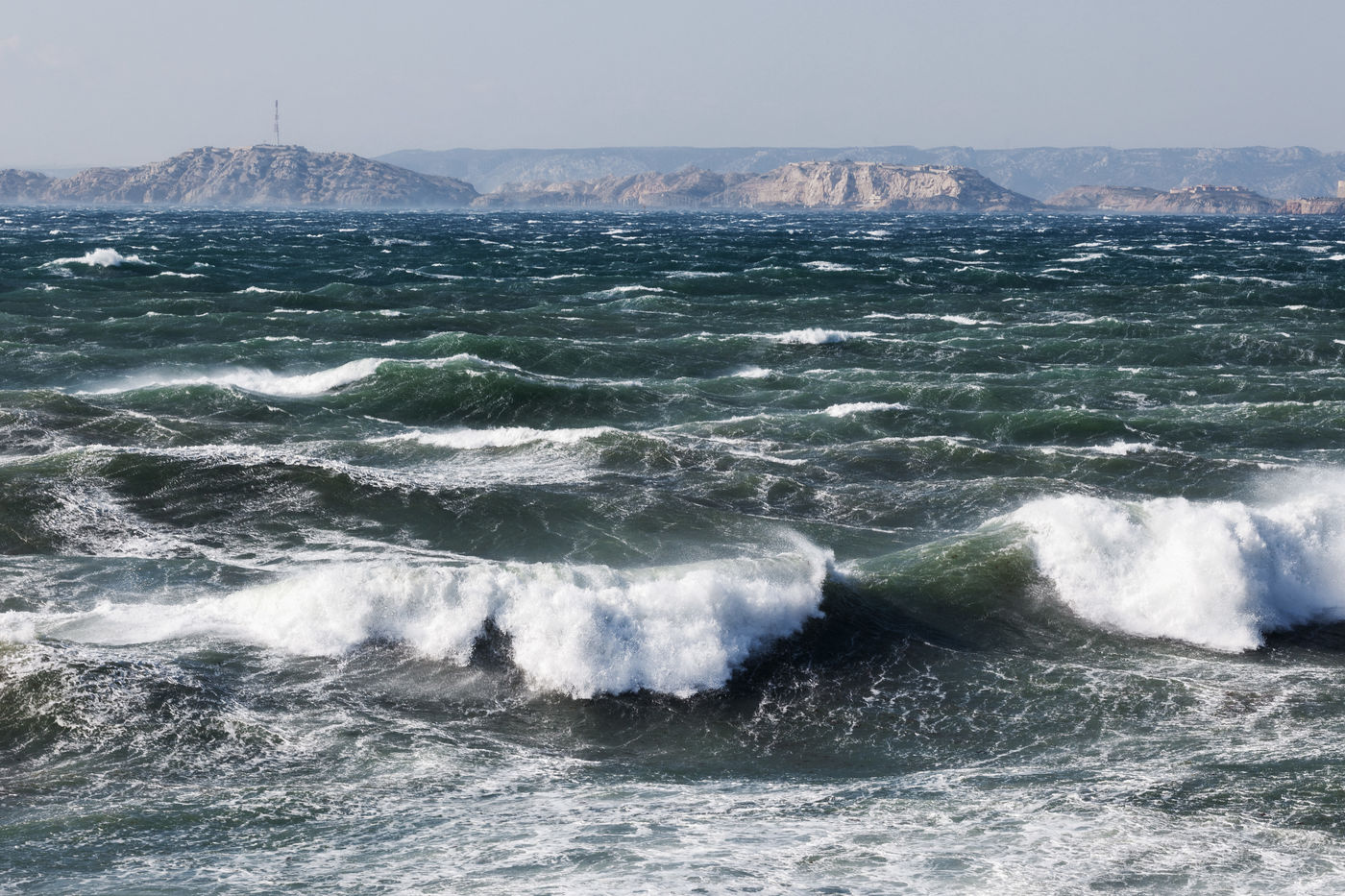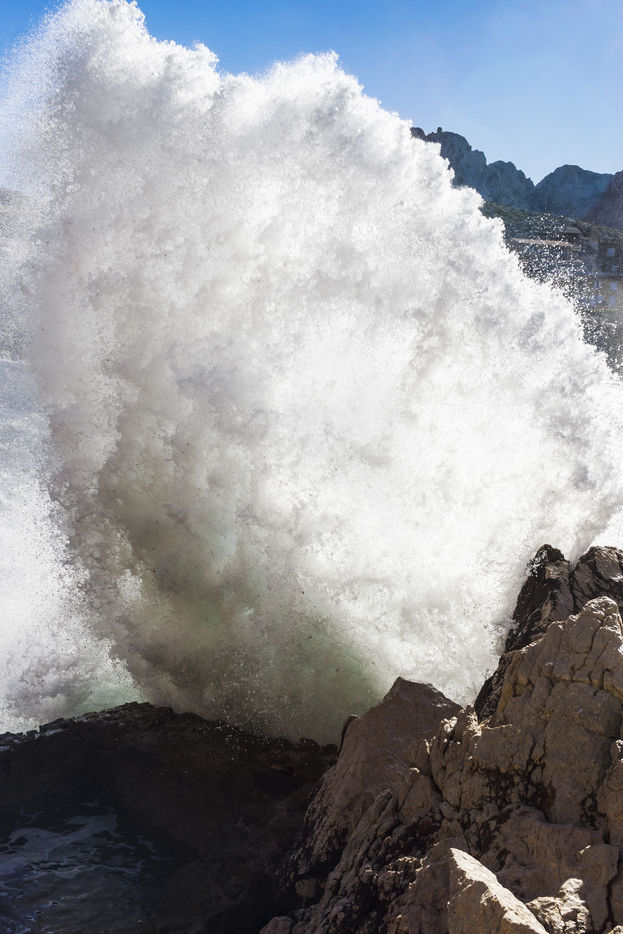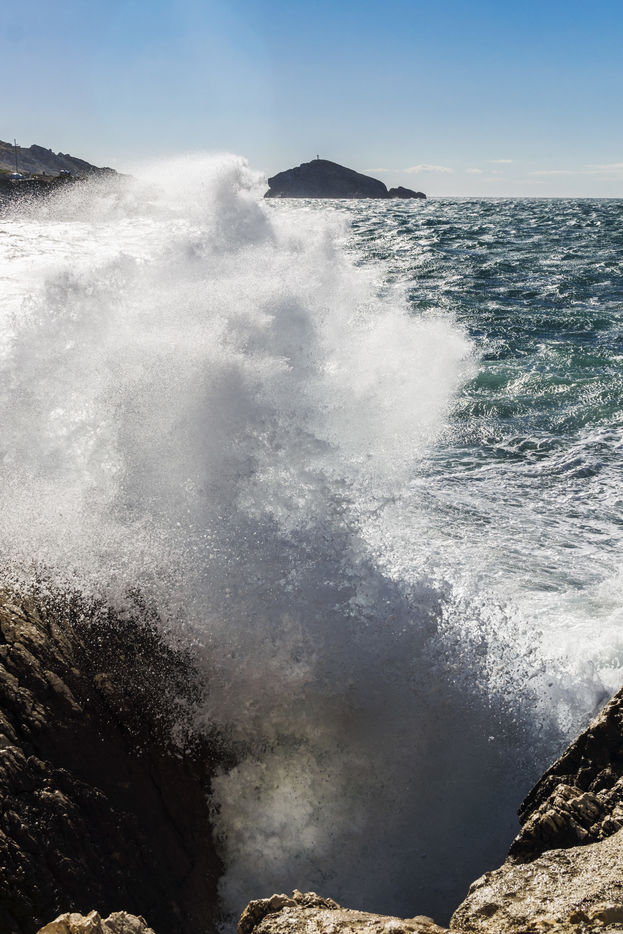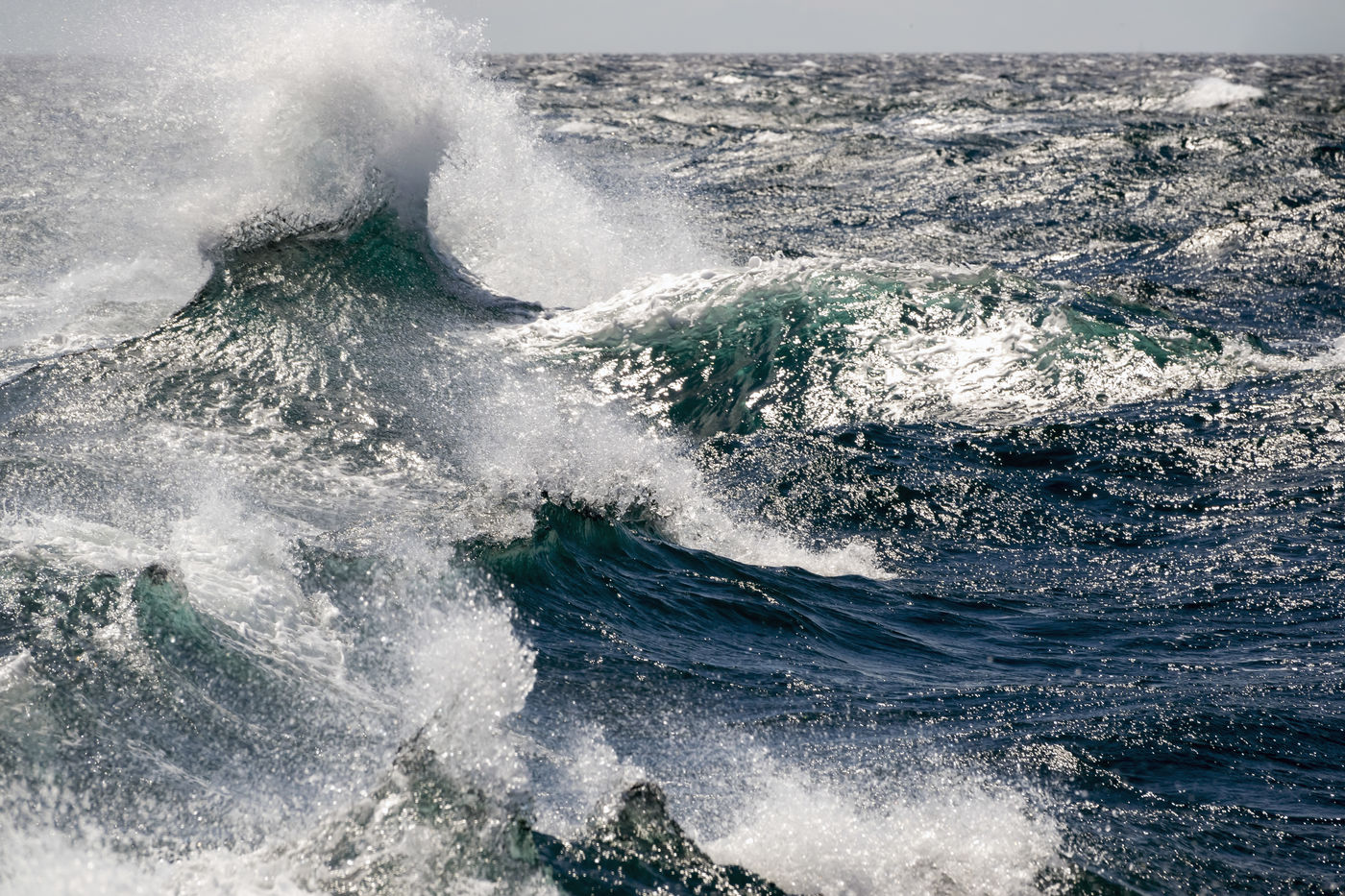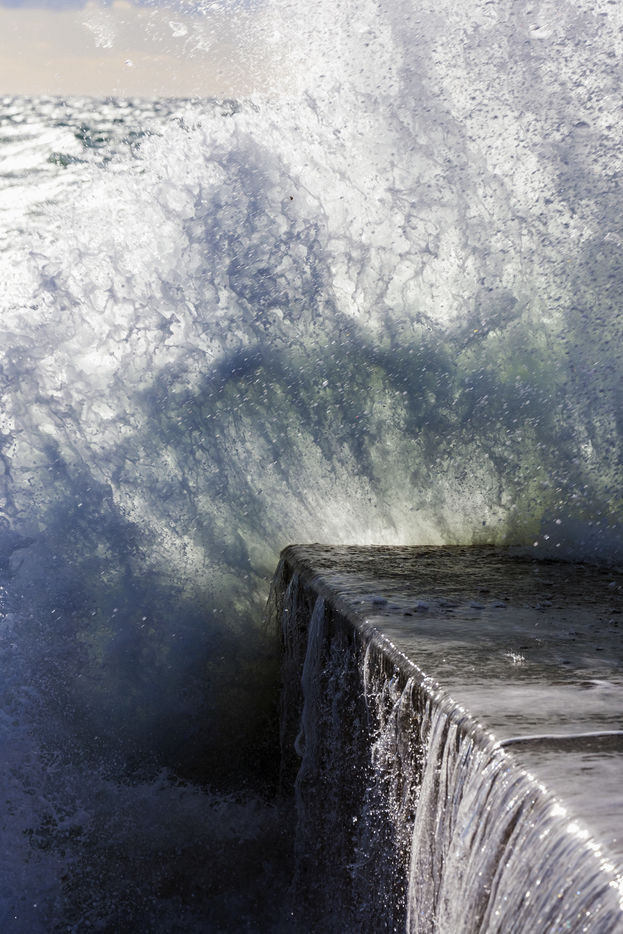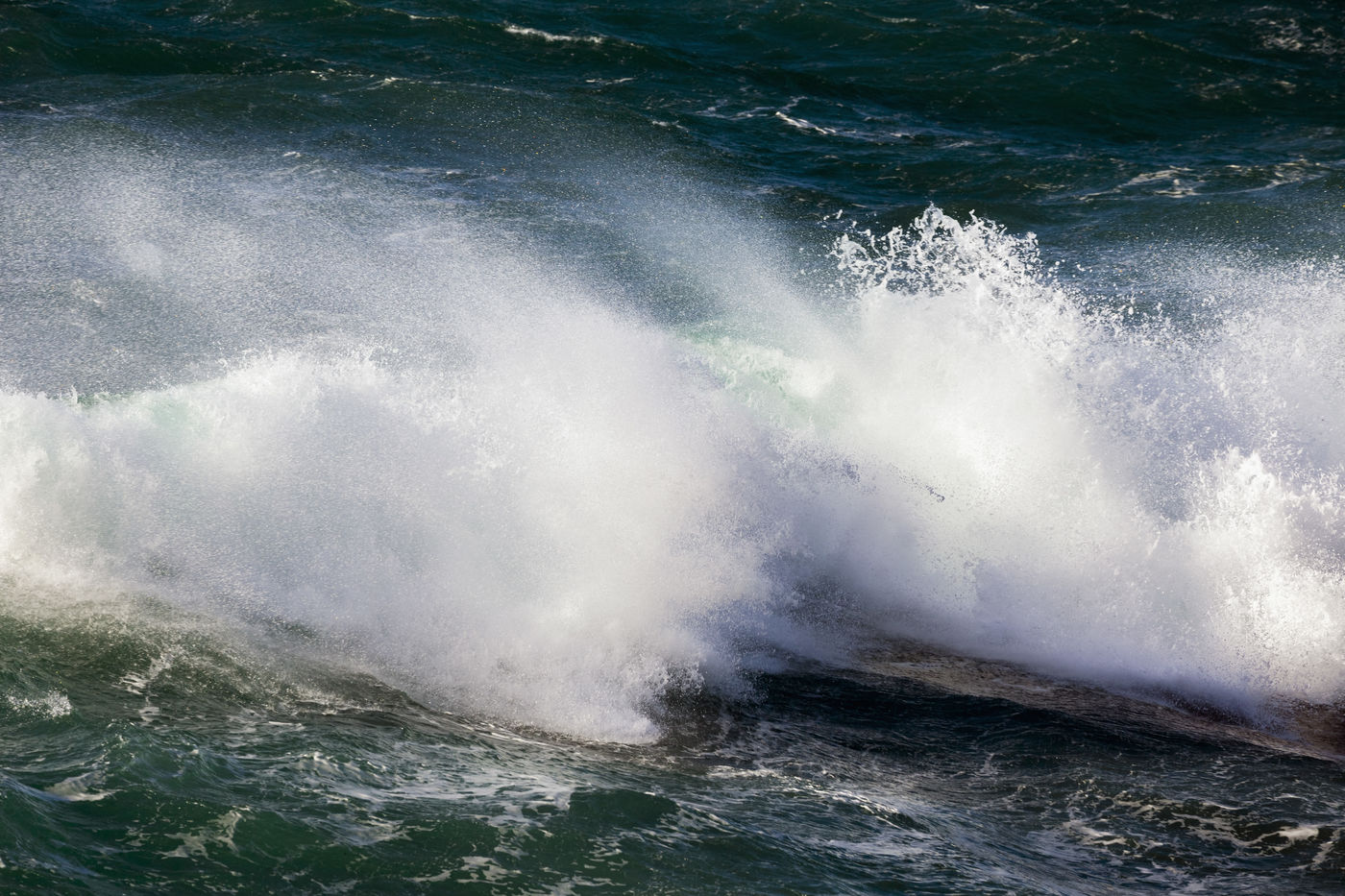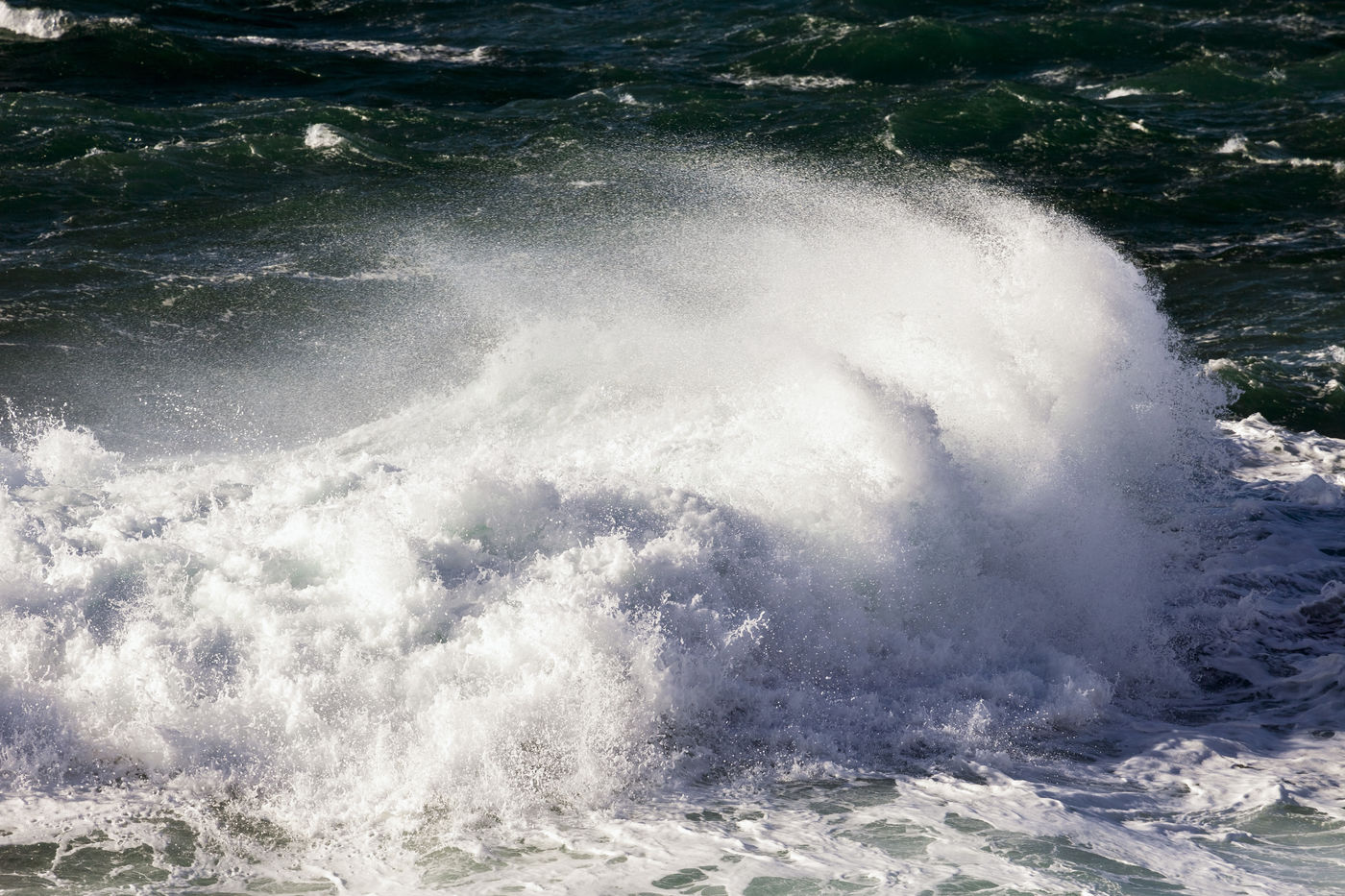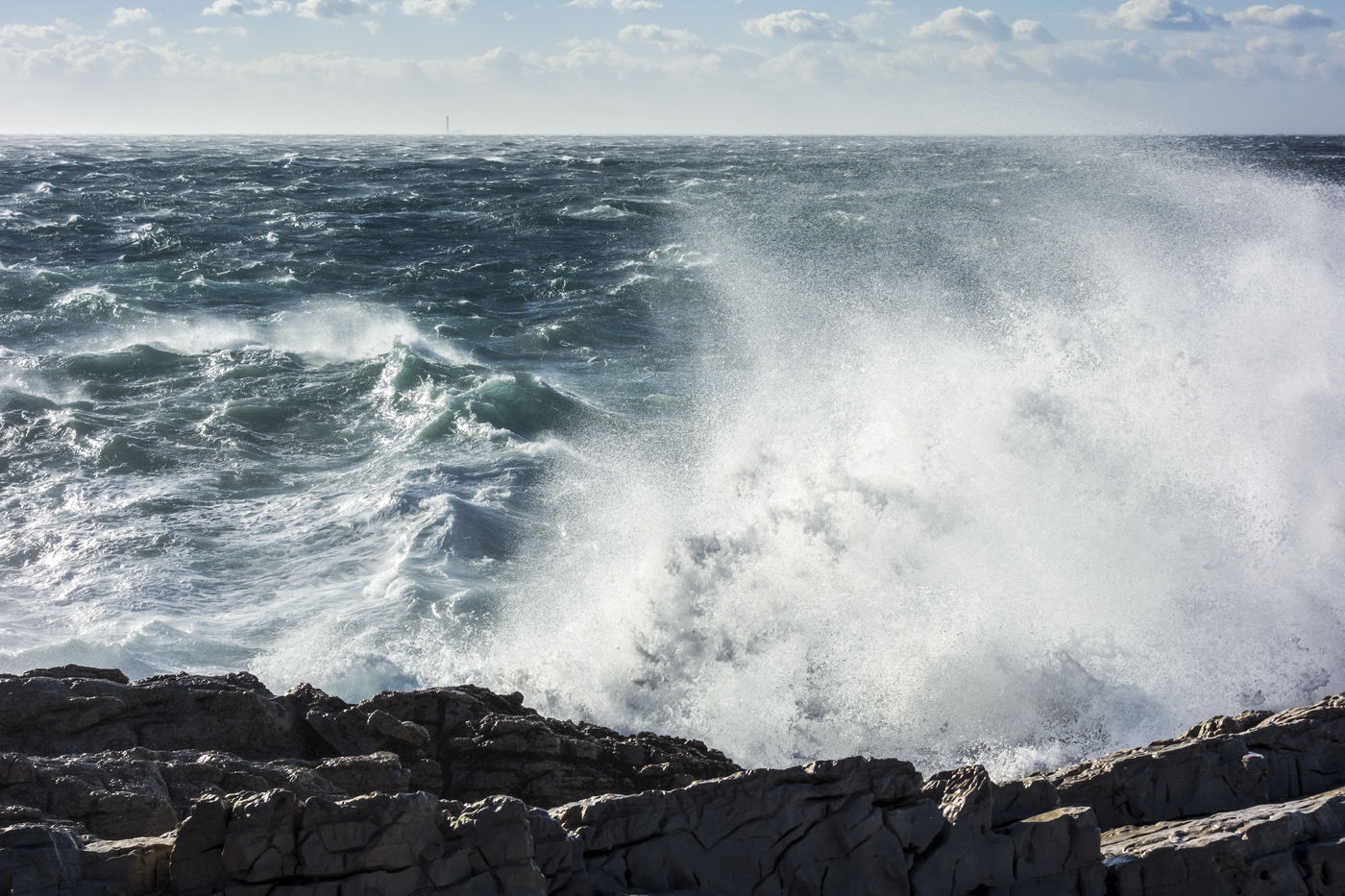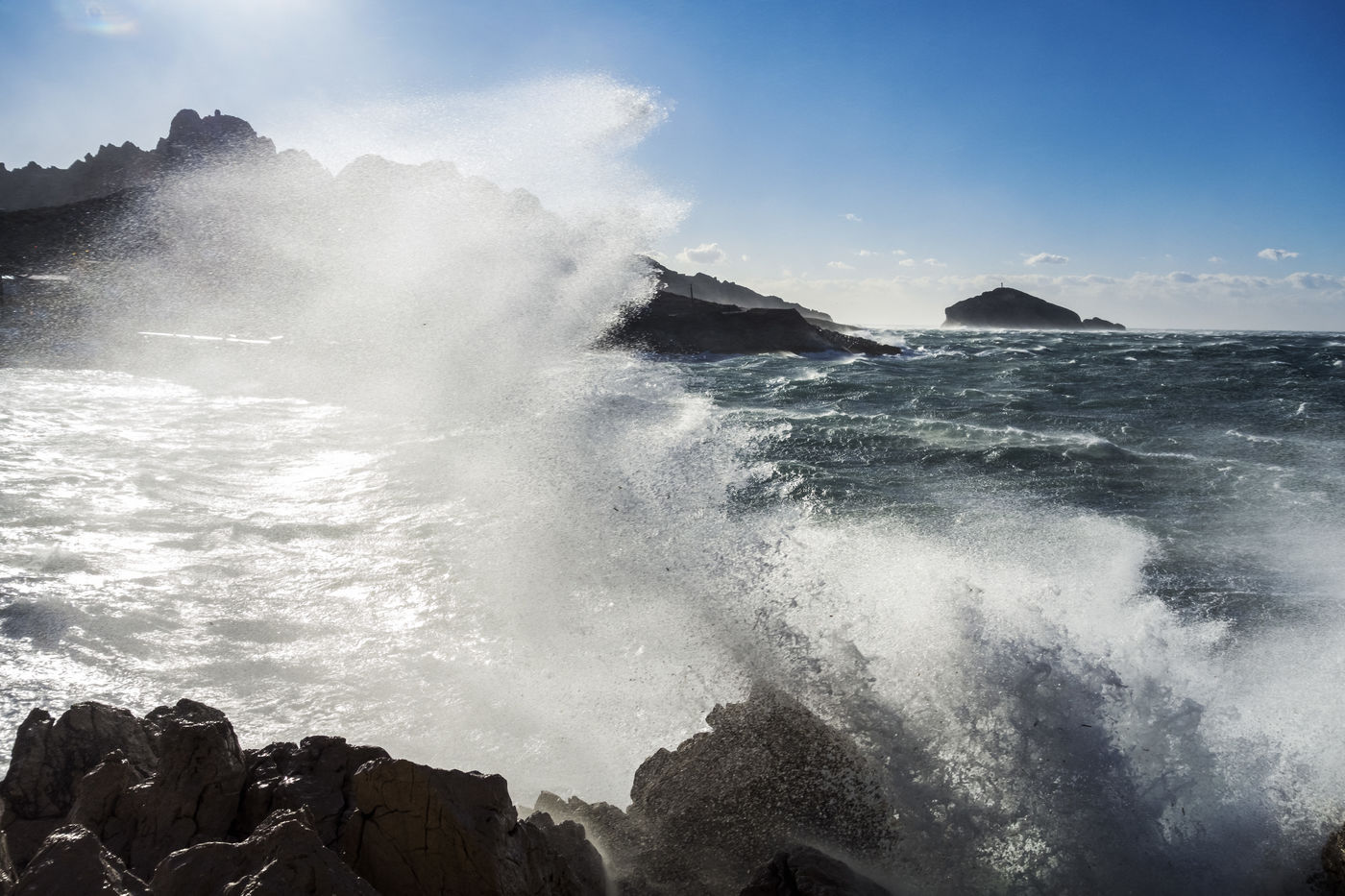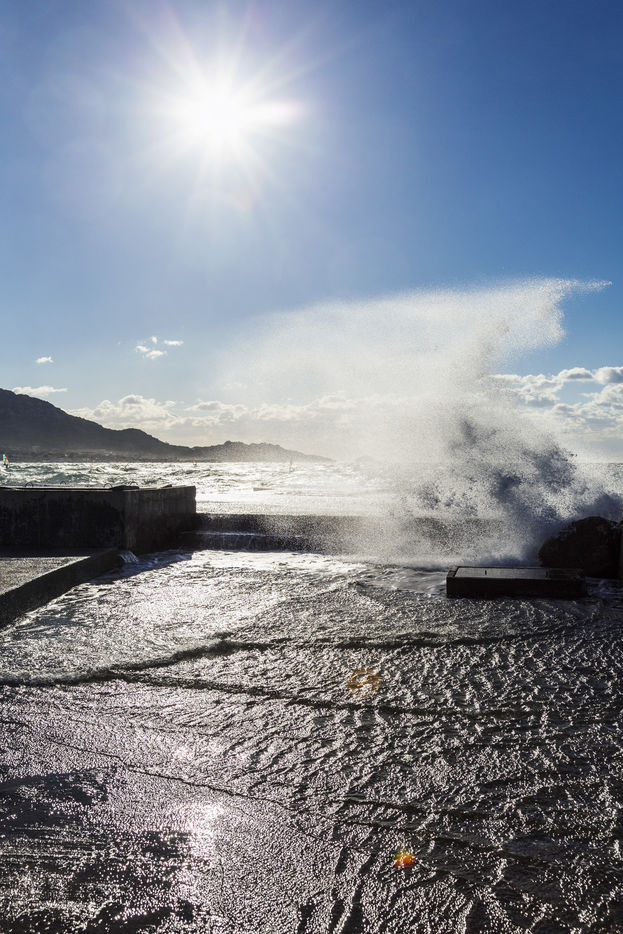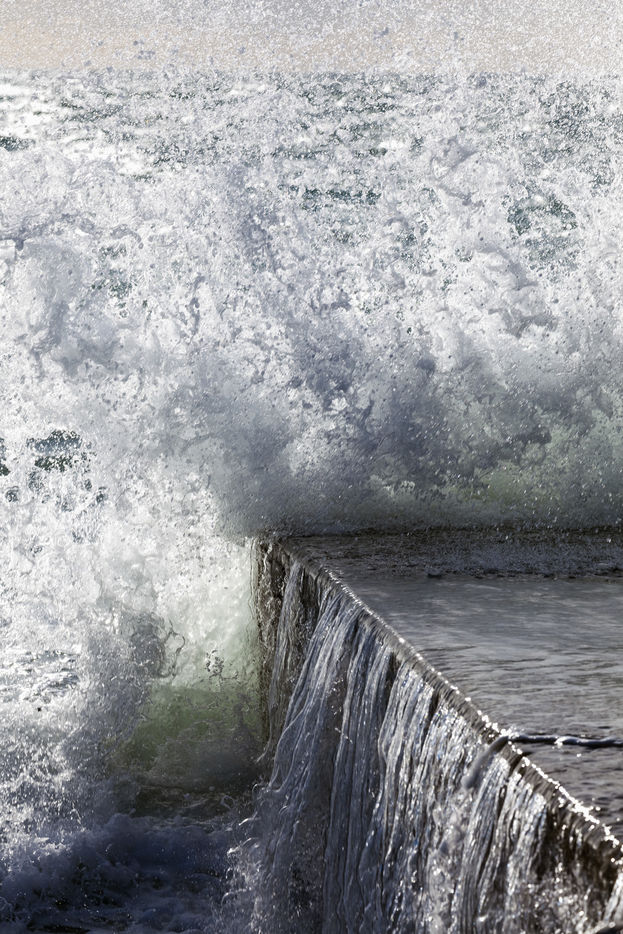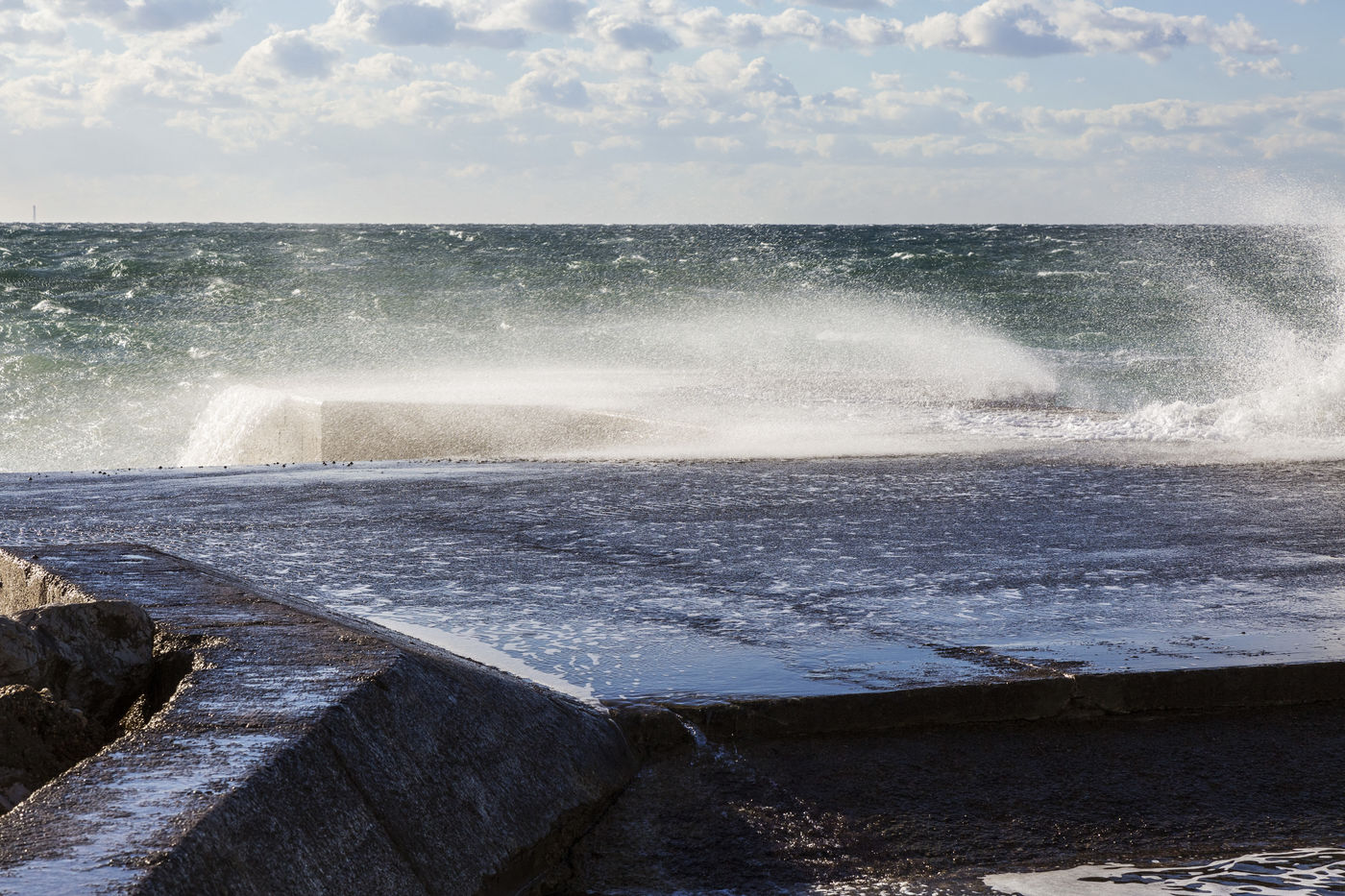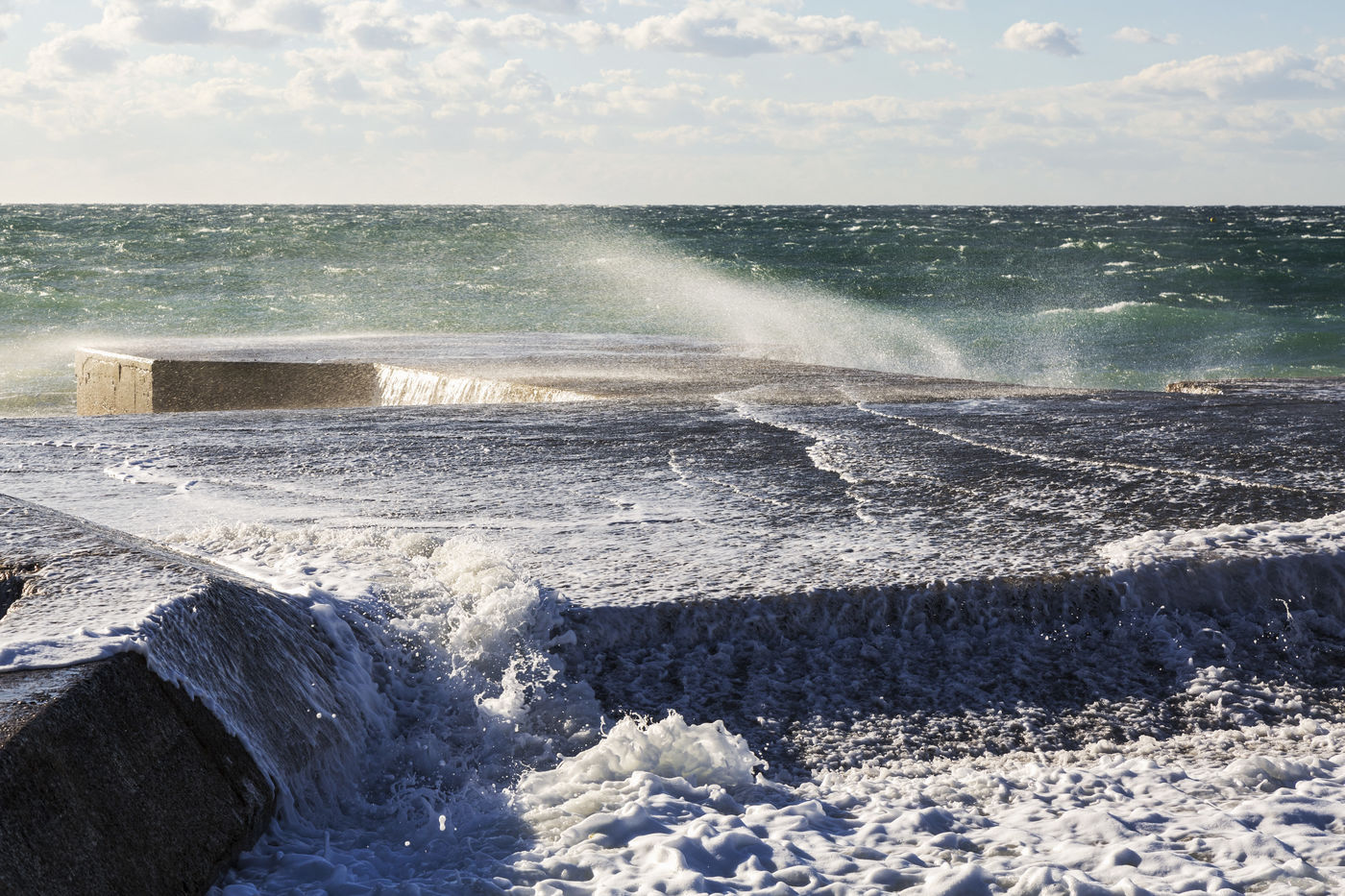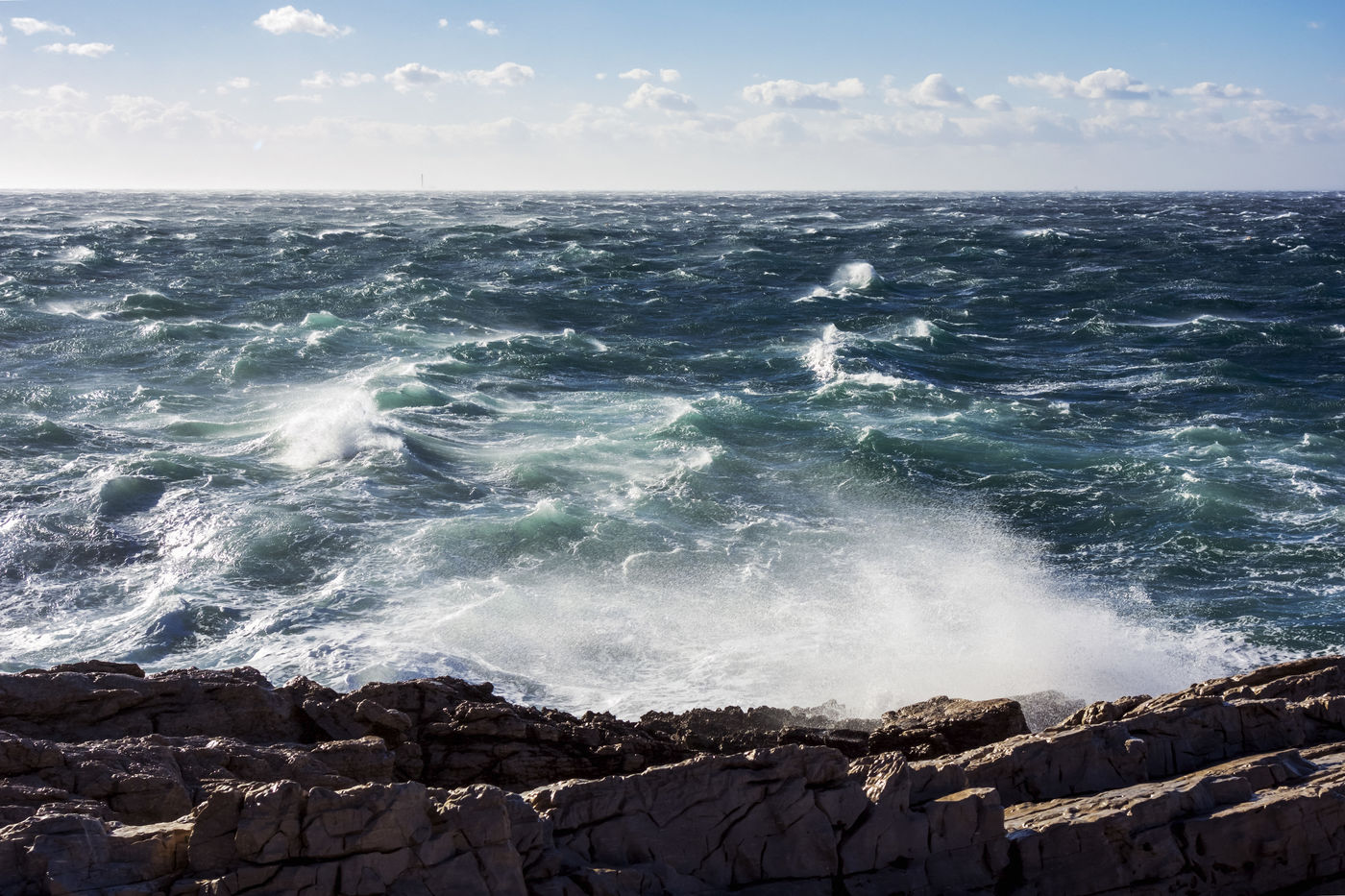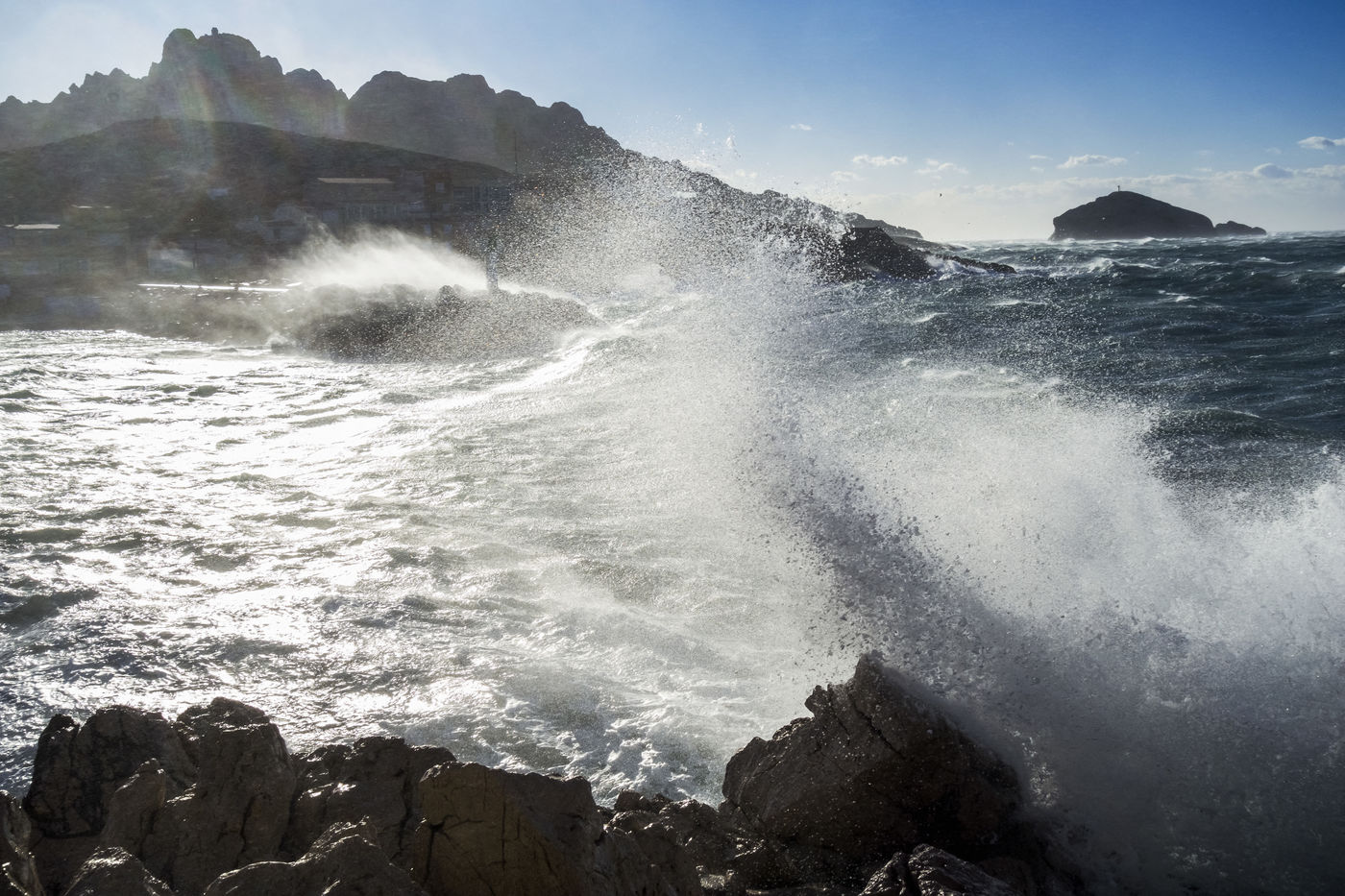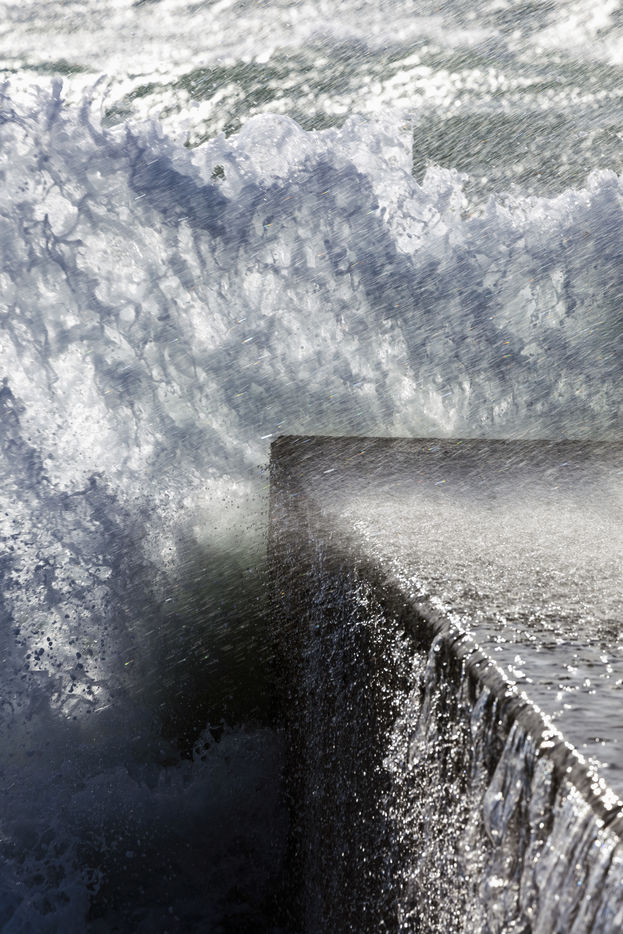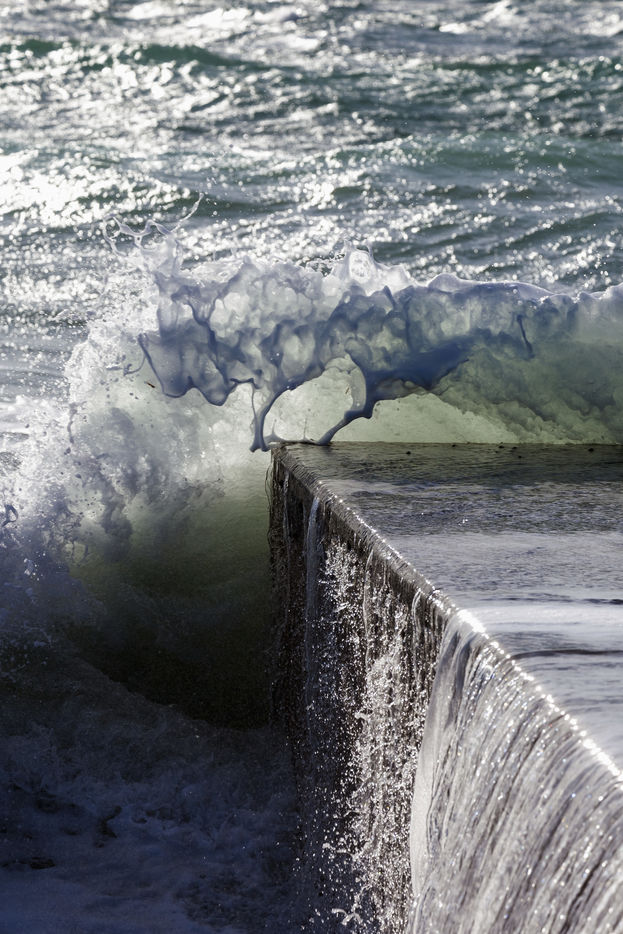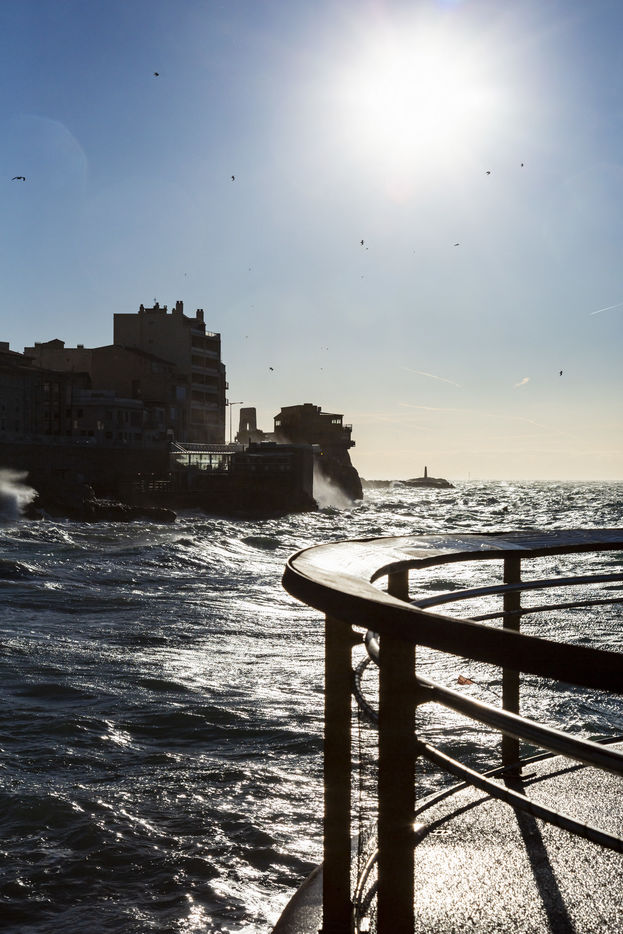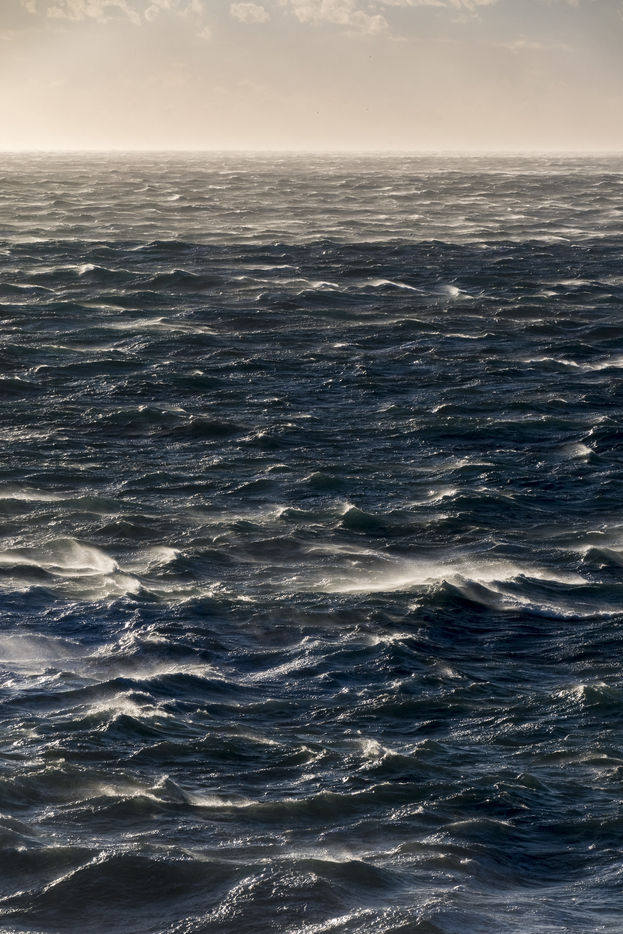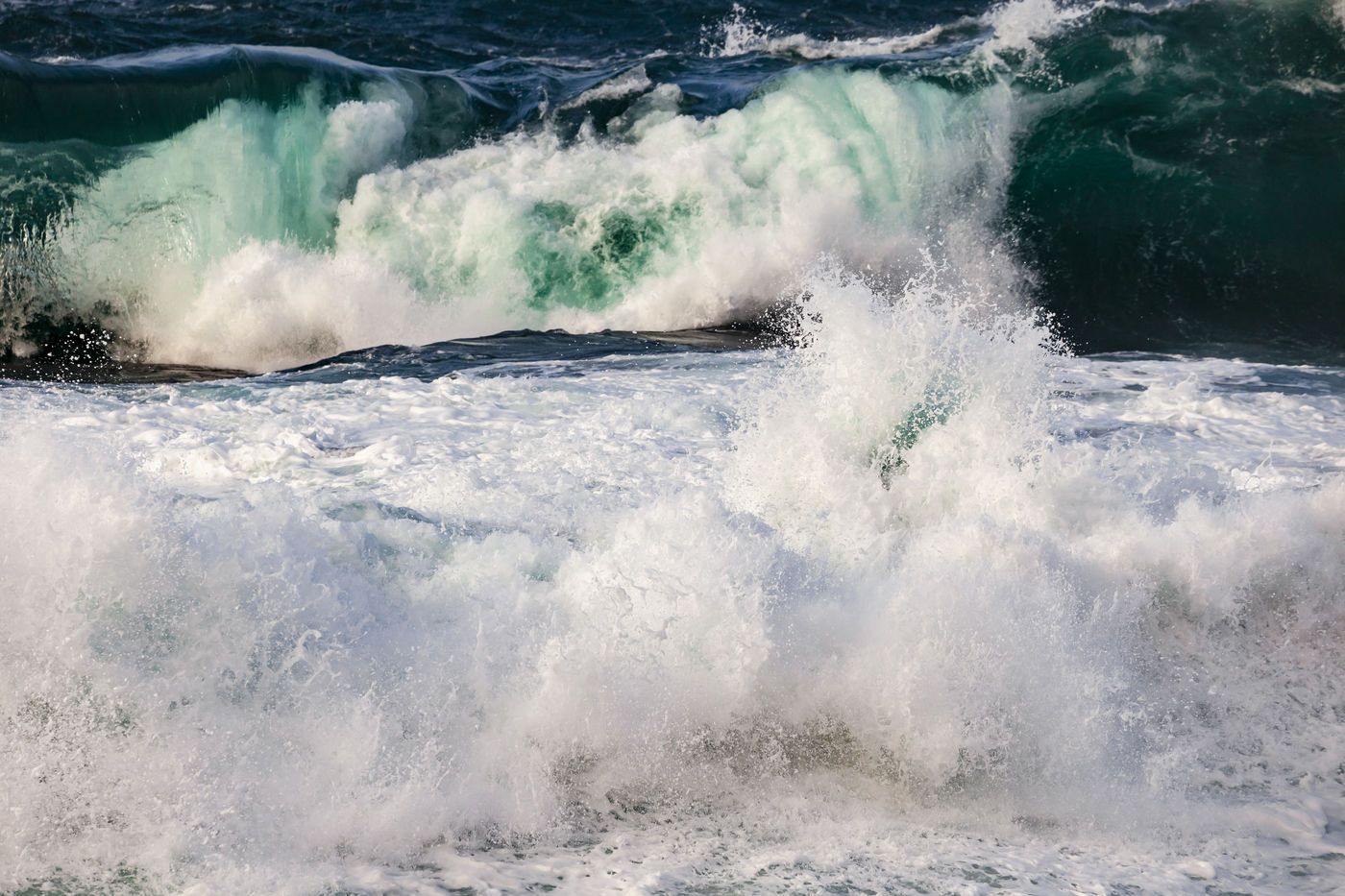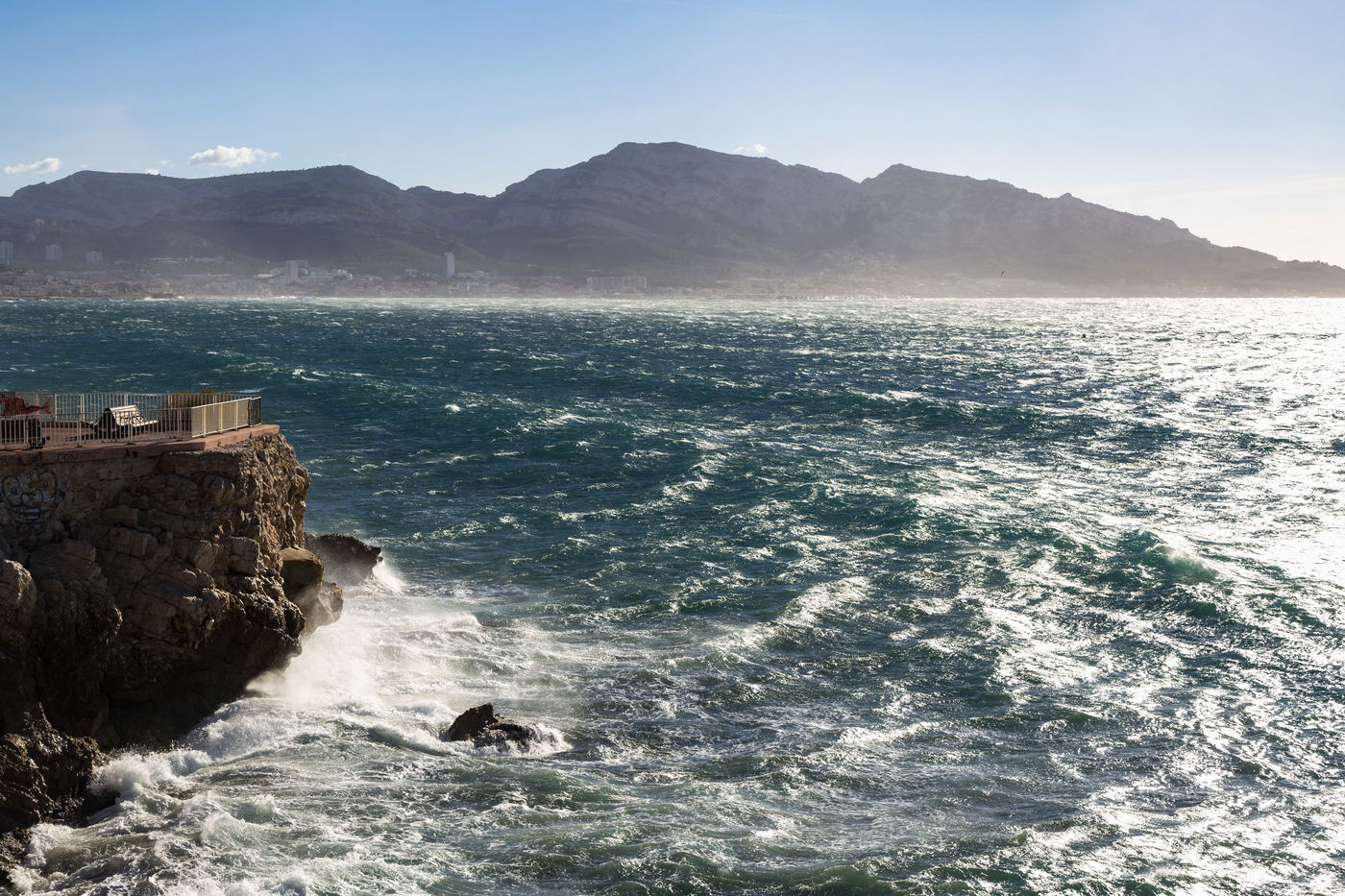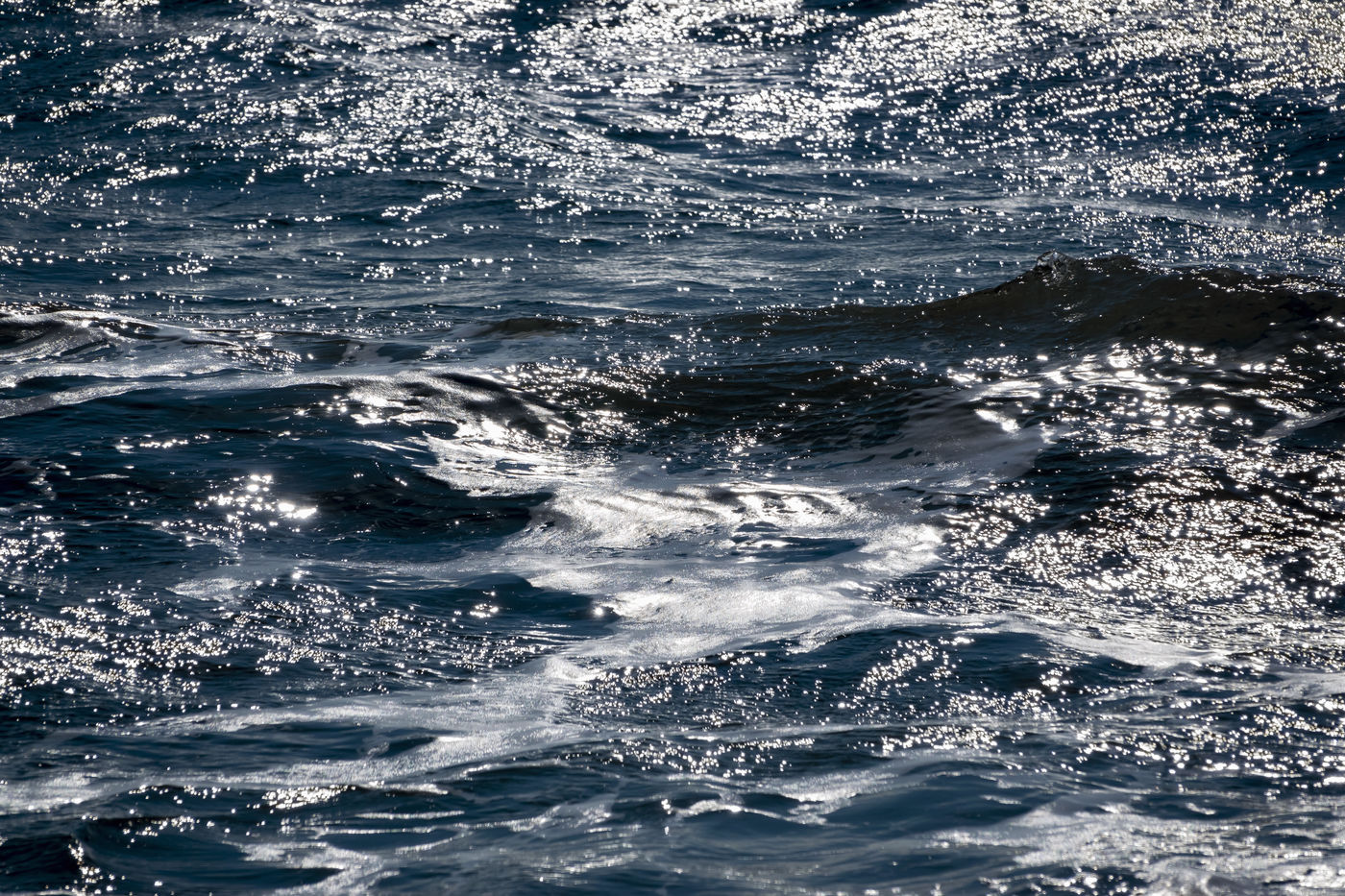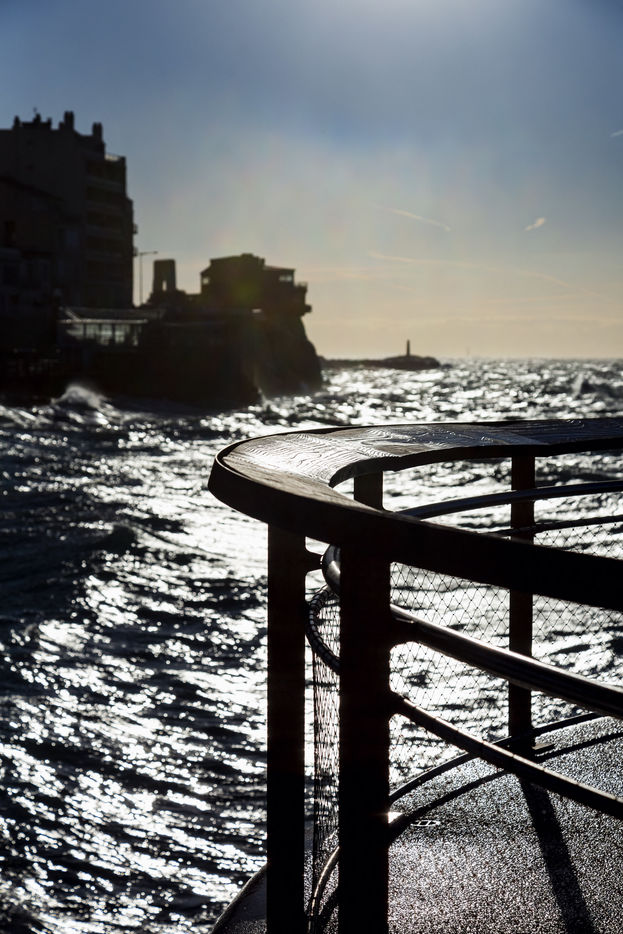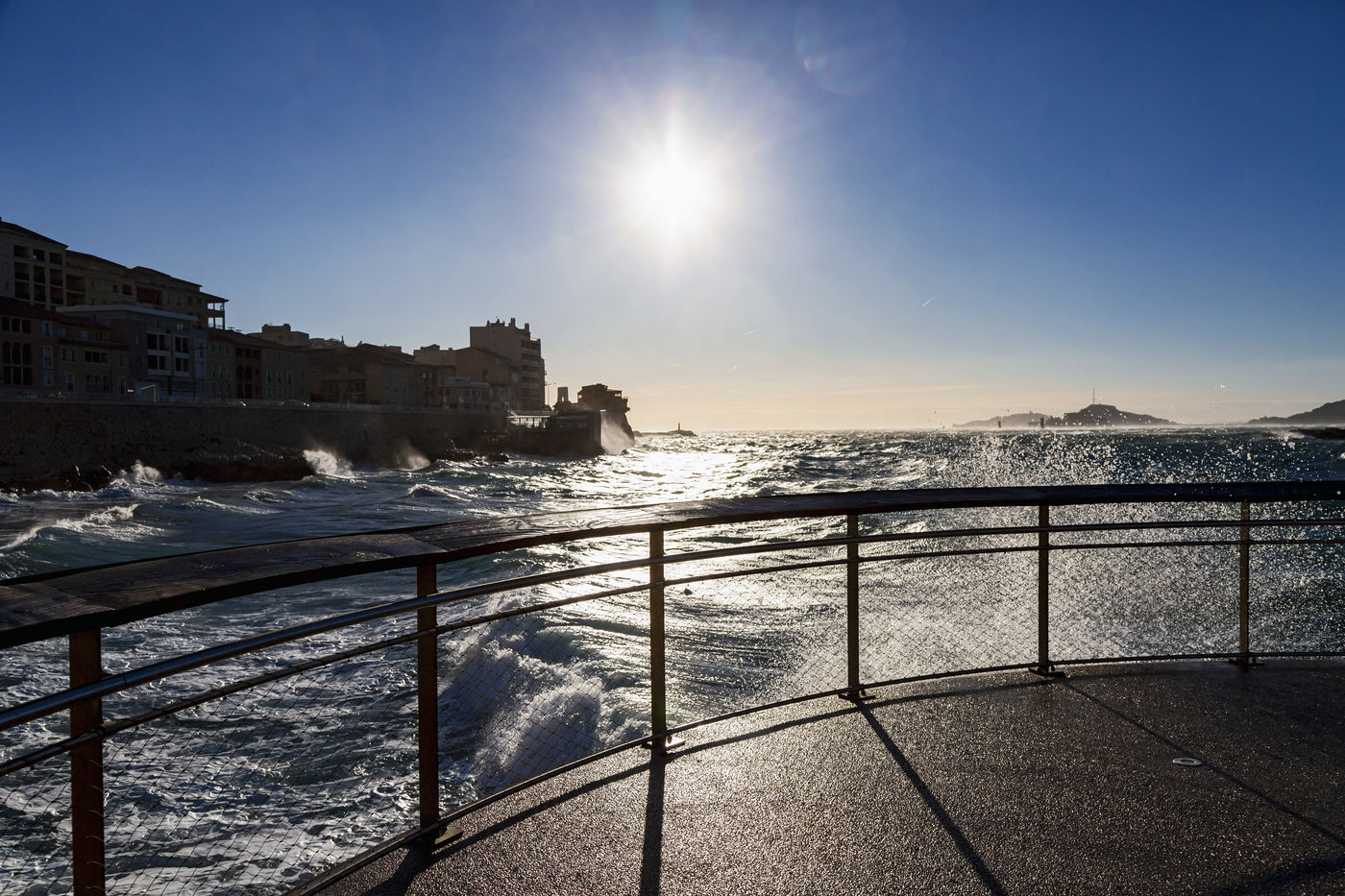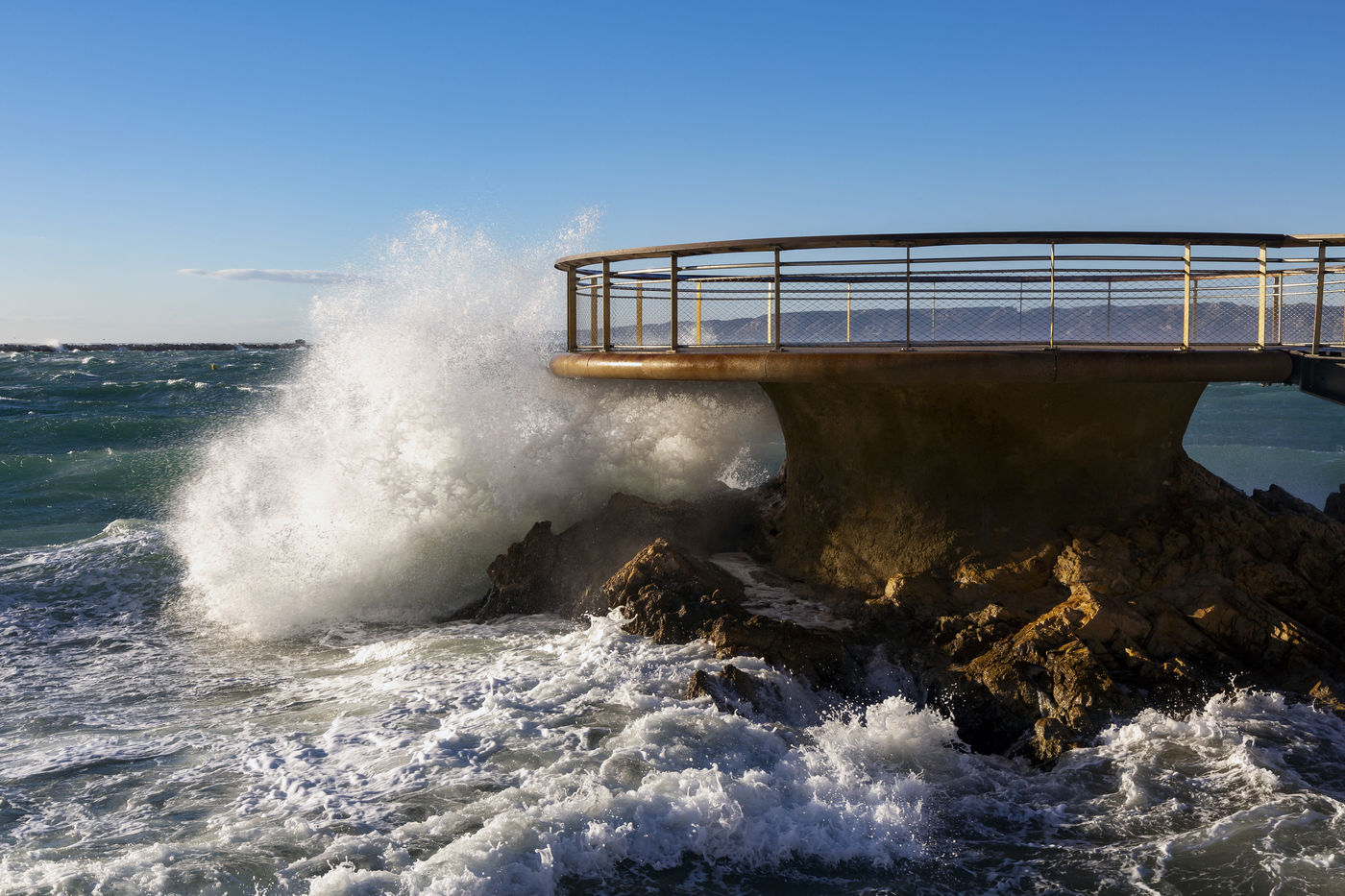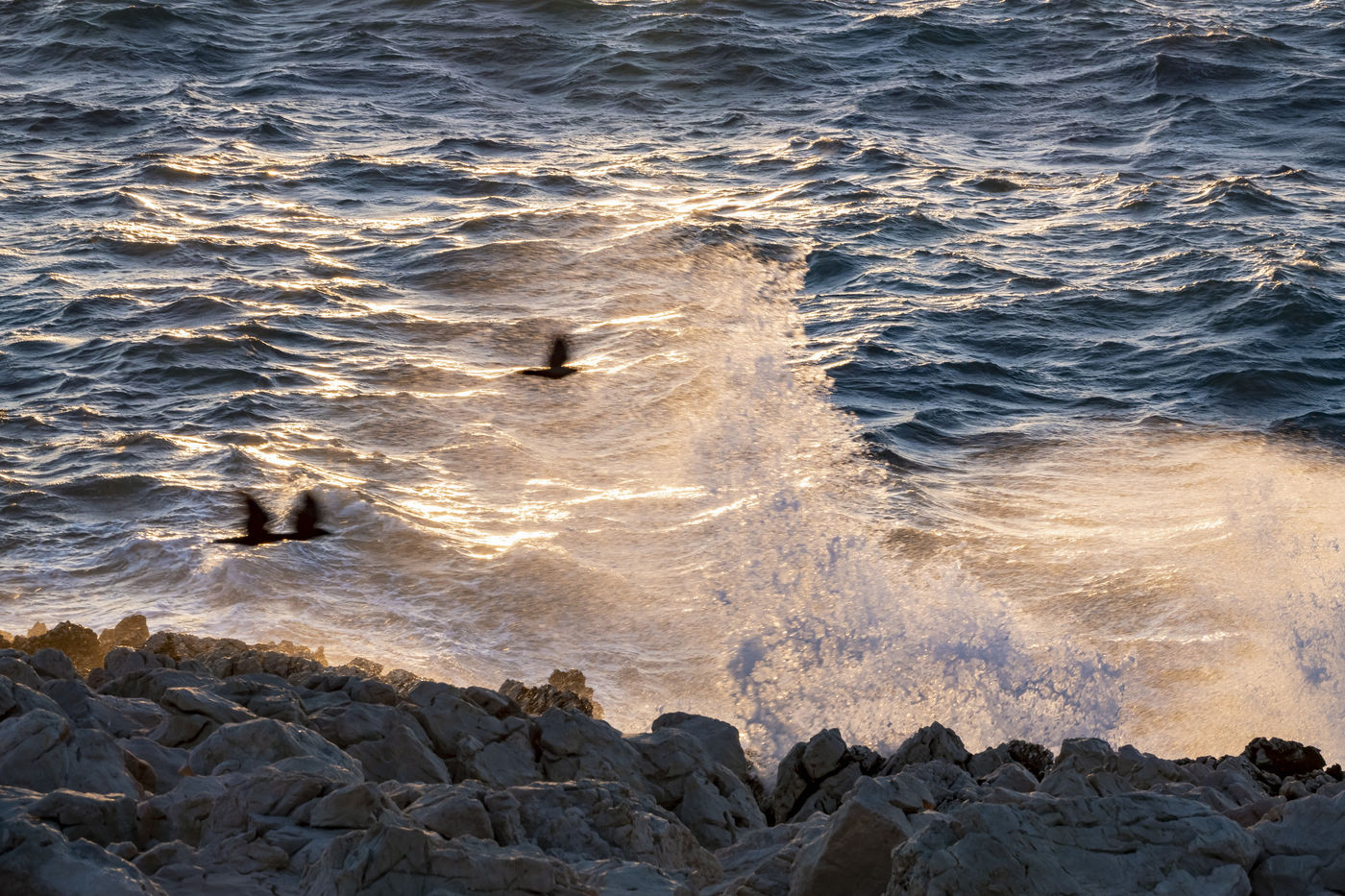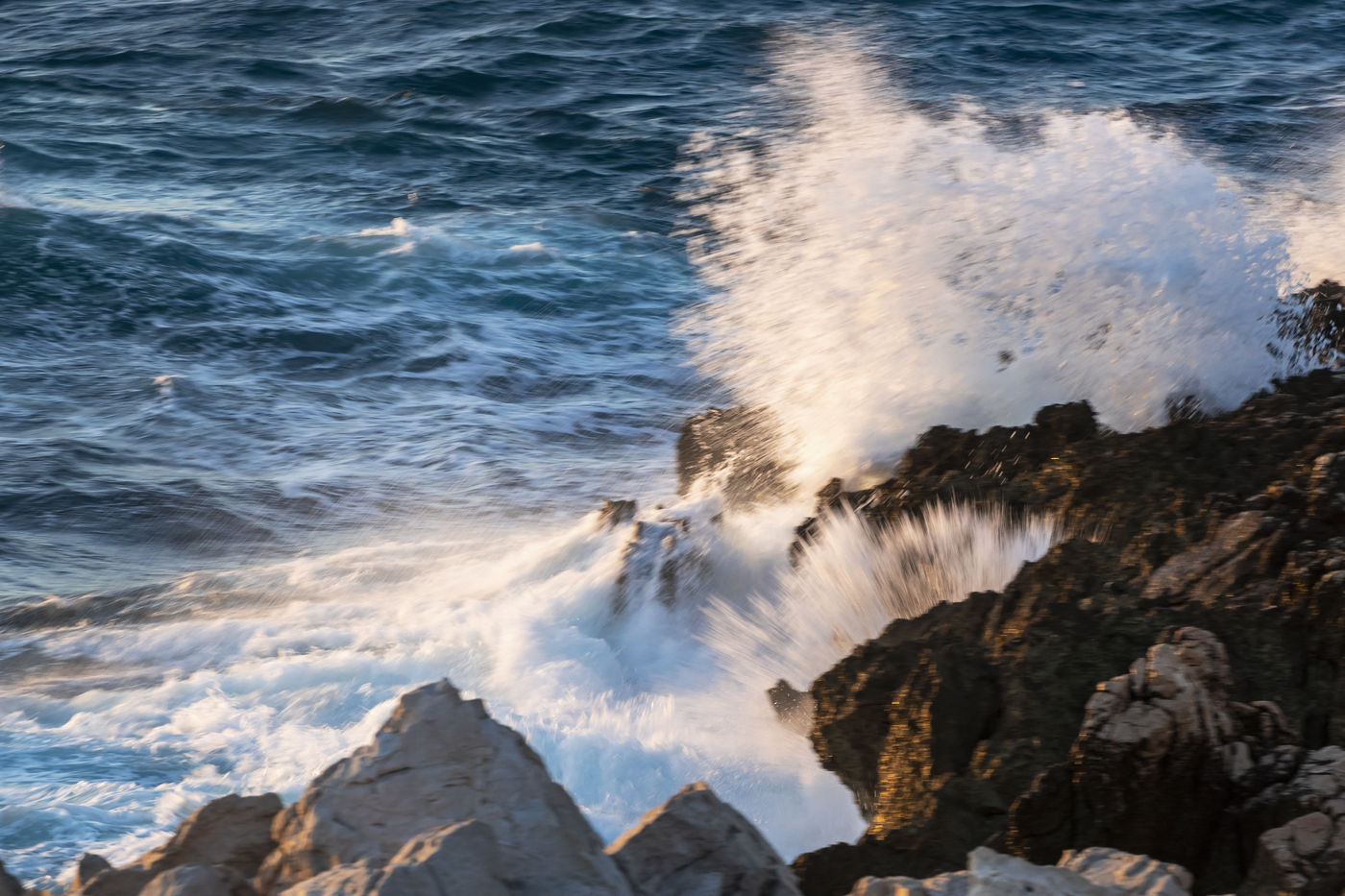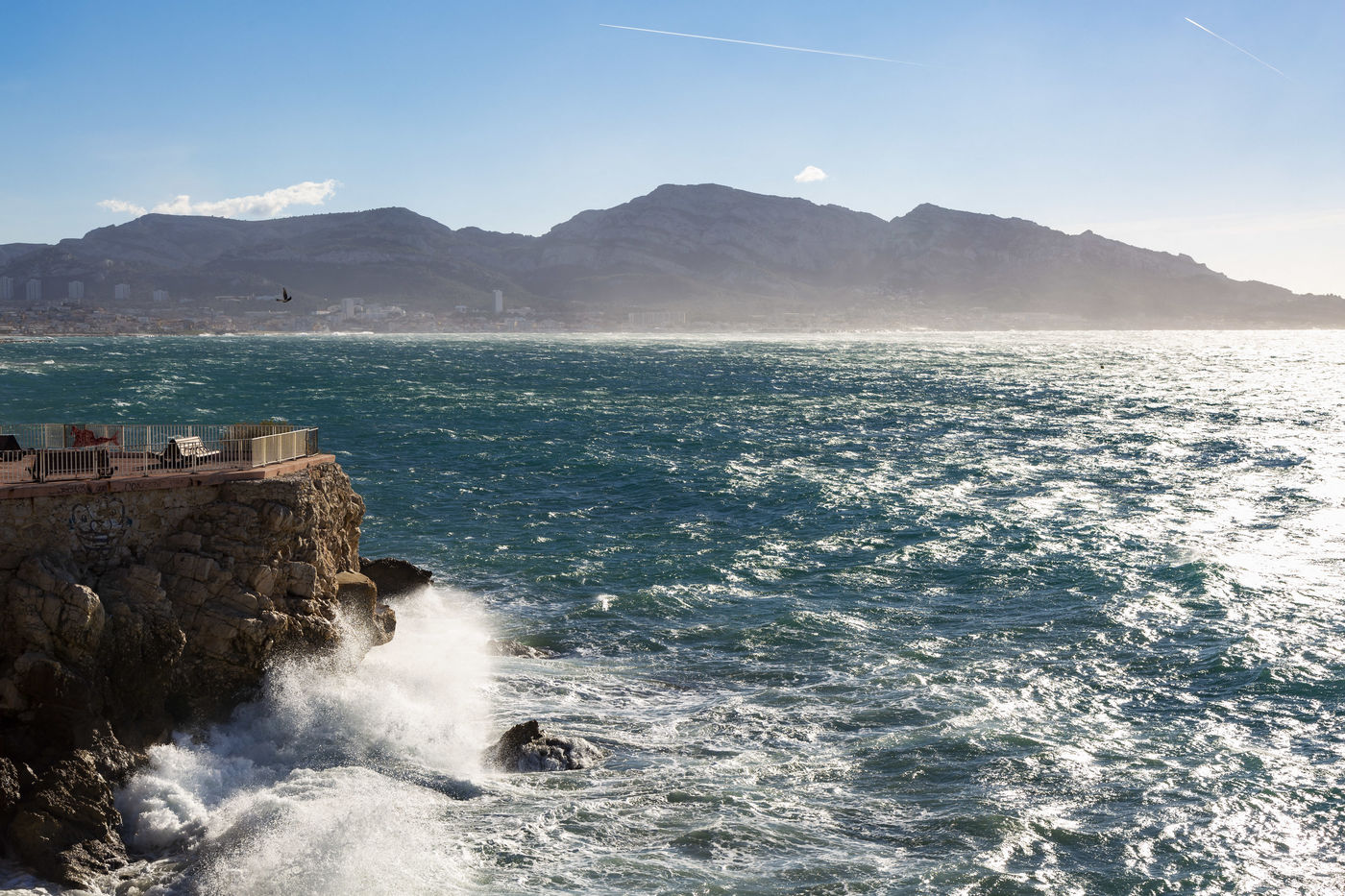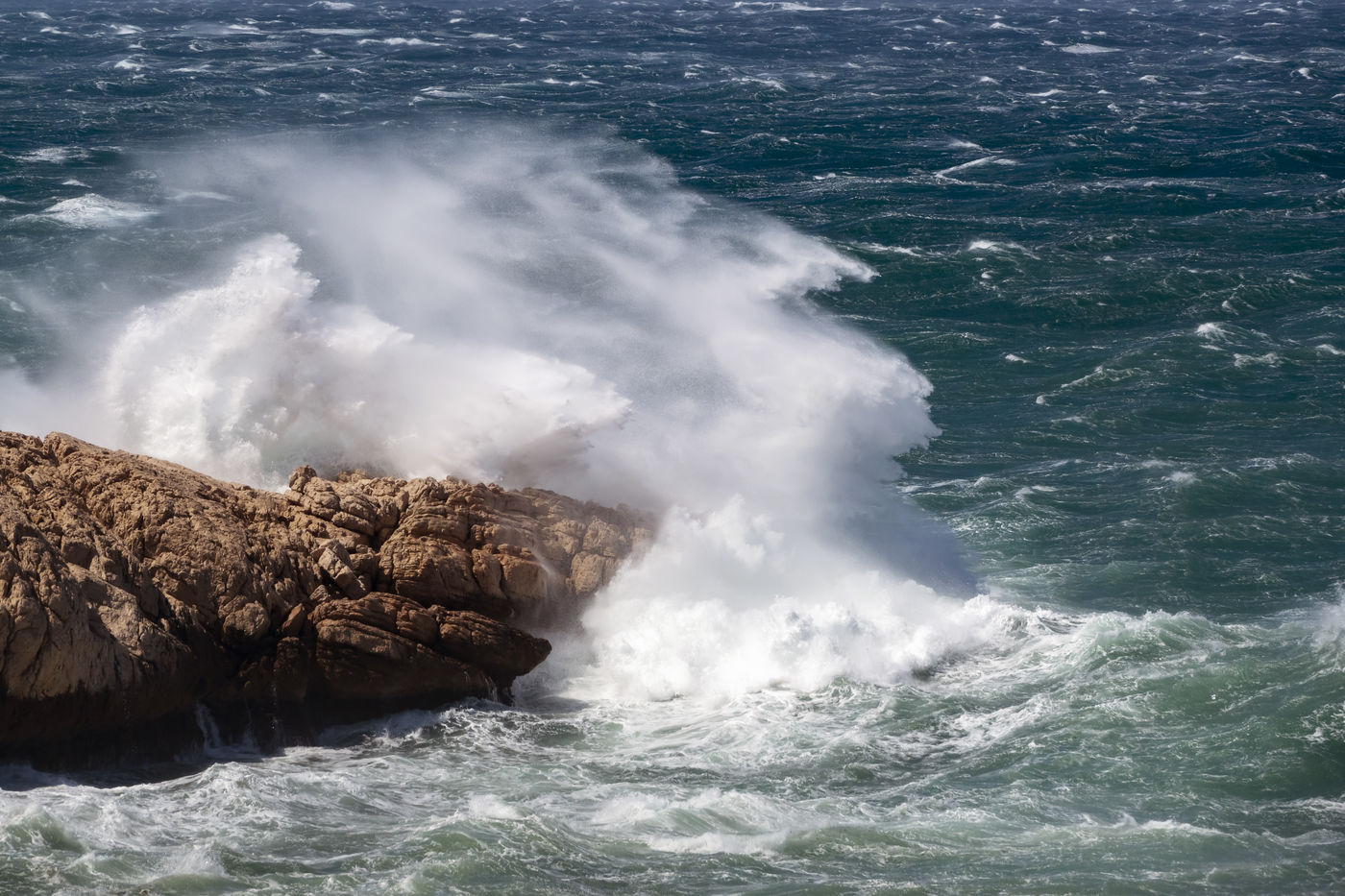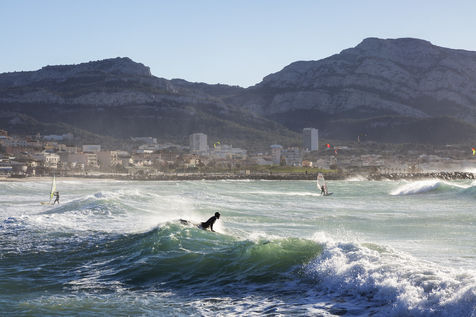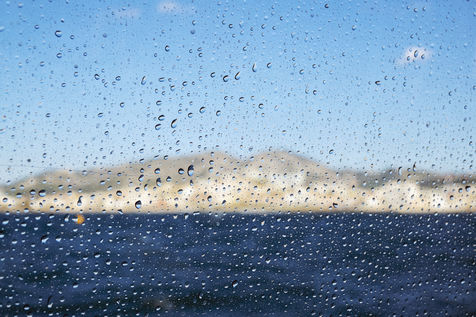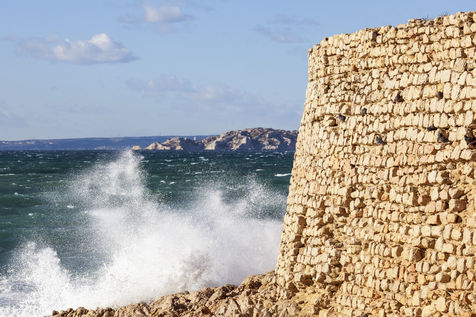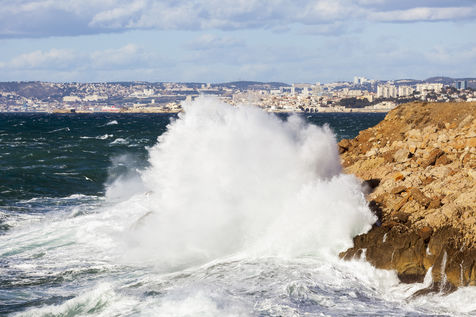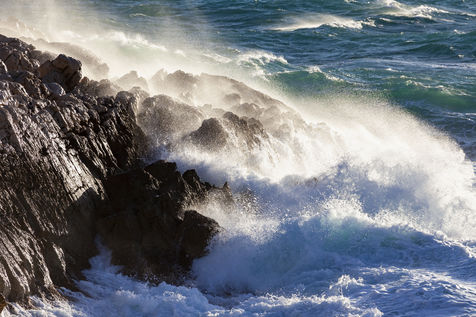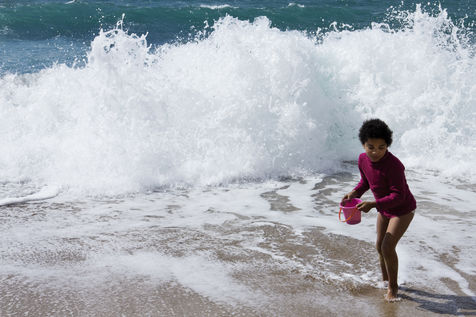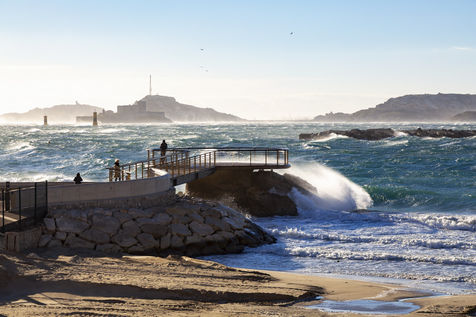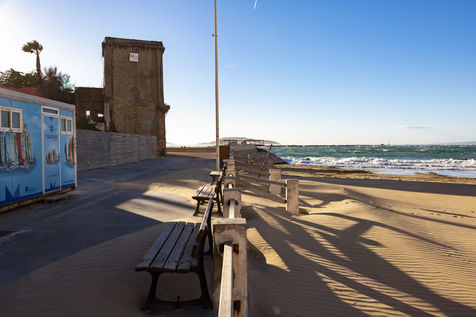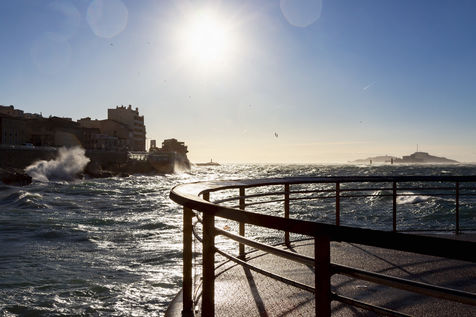Le mistral
Depuis qu'il habite dans le petit port de Cassis à l'abri du massif des calanques, Il n'est plus qu'un lointain souvenir pour lui, qui vient soulever la crête des vagues à la limite du Cap Canaille au large. Il le regrette parfois, n'entend plus les coups de boutoir de la mer contre les rochers de la côte, qui, quelques heures avant qu'il ne souffle, en annonçait la venue : le vent, le mistral !
Mais pendant une vingtaine d'années, depuis le 3e pont de sa maison qui dominait l'anse des phocéens et la baie de Marseille, il jouissait à l'avance de cette irrépressible envie de se confronter à ses rafales qui vaporisaient l'espace entier. Un vent sec, puissant, intraitable, courbant corps et arbres, cinglant toute peau laissée nue, exposée. Il se préparait rapidement, il savait que la partie était perdue d'avance. Il ne tiendrait pas longtemps.
Comme gagné par cette violence de l'air et de l'eau infiniment secoués, il partait au front, armé de son reflex Canon tropicalisé, et s'en allait se poster toujours aux mêmes endroits, là où le débat s'annonçait intense mais avec un risque d'exposition personnelle différent, il lui fallait un crescendo, tout en se préparant inconsciemment à une défaite cuisante, mais honorable. Un de ces combats qu'on ne remporte jamais mais auquel on s'essaie.
Cela se présentait un peu comme un rituel, l'entrée en matière après l'ancienne usine de l'Escalette, du côté du petit port d'où il saisissait les gerbes d'eau salée qui montaient si haut parfois qu'elles en masquaient la vue de la ville au fond, à distance toutefois. Il lui arrivait moins souvent d'aller marcher sur la grande plage du Prado, plus fréquentée lors des grandes tempêtes, pour observer des épais rideaux d'embruns se soulever contre les brisants de la jetée.
Il prenait ensuite la roue étroite qui menait au petit port des Goudes, garait sa voiture après le rond-point à la barque et descendait l'escalier le long du restaurant pour aller au plus près, au feu si ce n'était de l'eau en furie qui finissait tôt ou tard par l'asperger entièrement, il s'était avancé au-delà du raisonnable. Jusqu'à en perdre l'équilibre dans sa quête de l'instant paroxystique.
Une prise de risque inutile, il savait que toutes ces images assemblées au cours des années se ressemblaient comme deux grosses gouttes d'eau salée et n'intéressaient personne. Il était photographe de métier, il le savait, mais cultivait son plaisir avant toute autre chose.
C'est ainsi qu'il revenait chez lui trempé comme une soupe, les yeux rougis, il avait été au contact des choses avec une forme d'intensité qui rendait insignifiante toute la suite logique de son travail, traitement des fichiers, catalogage, légendage, ce n'était que du vent pour lui.
Le mistral
Since he lives in the small port of Cassis in the shelter of the calanques, it is only a distant memory for him, which comes to raise the crest of the waves at the limit of the Cap Canaille in the wide. He sometimes regrets it, no longer hears the pounding of the sea against the rocks of the coast, which, a few hours before it blew, announced its coming: the wind, the mistral!
But for about twenty years, from the third deck of his house overlooking the cove of the Phocéens and the bay of Marseille, he enjoyed in advance this irrepressible desire to confront its gusts that vaporized the entire space. A dry, powerful, intractable wind, bending bodies and trees, scathing any skin left naked, exposed. He prepared himself quickly, he knew that the game was lost in advance. He would not last long.
As if won over by the violence of the infinitely shaken air and water, he went to the front, armed with his tropicalized Canon reflex, and went to post himself always in the same places, where the debate would be intense but with a different risk of personal exposure, he needed a crescendo, while preparing himself unconsciously for a bitter but honorable defeat. One of those fights that you never win but you try.
It was a bit like a ritual, the entrance after the old factory of l'Escalette, on the side of the small harbor from where he could see the salt water sprays that sometimes went up so high that they masked the view of the city in the background, but at a distance. Less often, he would walk along the large beach of the Prado, which was more frequented during the great storms, to observe the thick curtains of spray rising against the breakers of the pier.
He would then take the narrow wheel that led to the small port of Les Goudes, park his car after the traffic circle at the boat and go down the stairs along the restaurant to get as close as possible to the fire, if it wasn't for the raging water that would sooner or later end up spraying him entirely, he had advanced beyond what was reasonable. Until he lost his balance in his quest for the paroxysmal moment.
A useless risk, he knew that all these images assembled over the years looked like two big drops of salt water and were of no interest to anyone. He was a photographer by trade, he knew it, but he cultivated his pleasure before anything else.
That's how he came back home soaked like a soup, his eyes reddened, he had been in contact with things with a kind of intensity that made all the logical continuation of his work, file processing, cataloguing, captioning, nothing more than wind for him.
